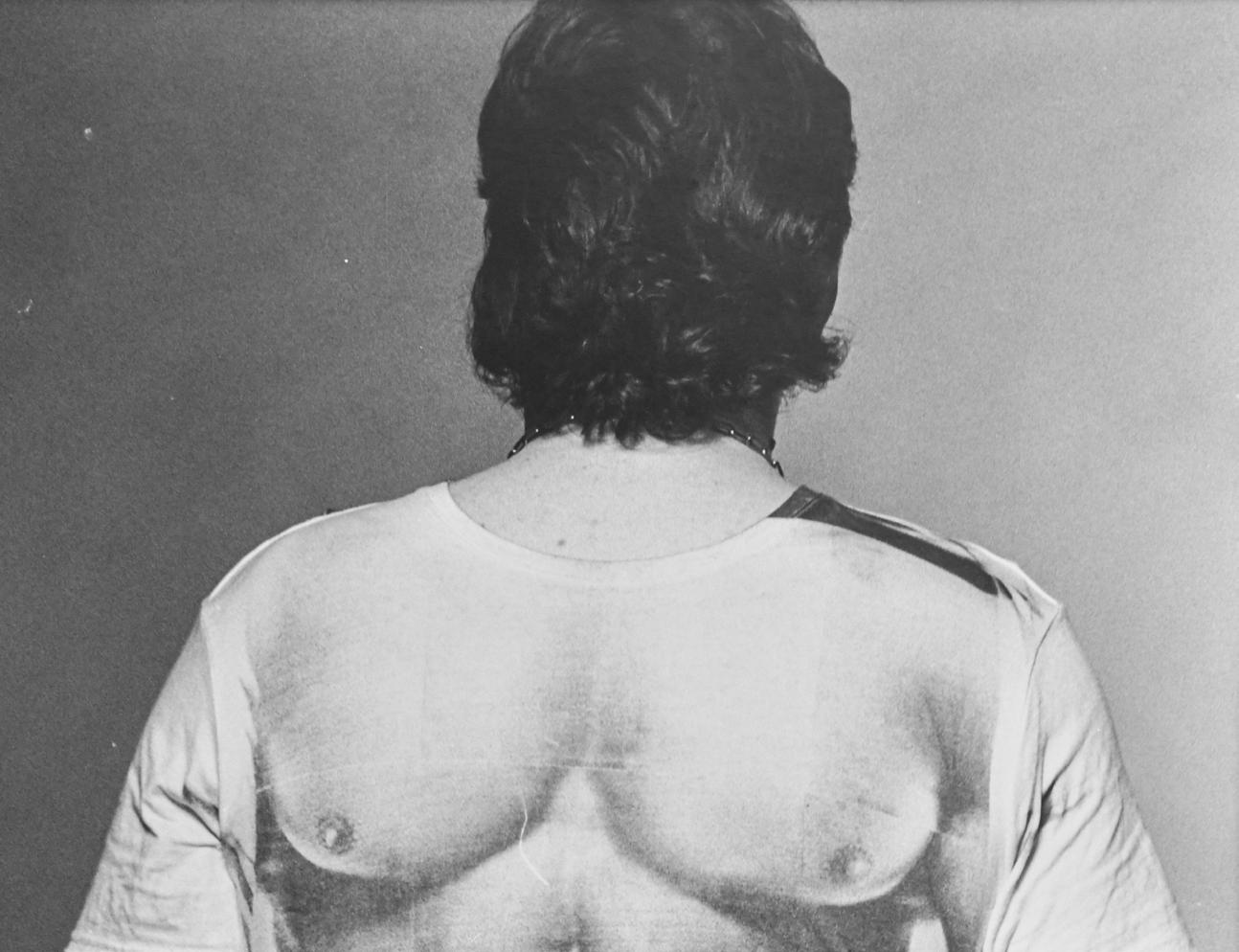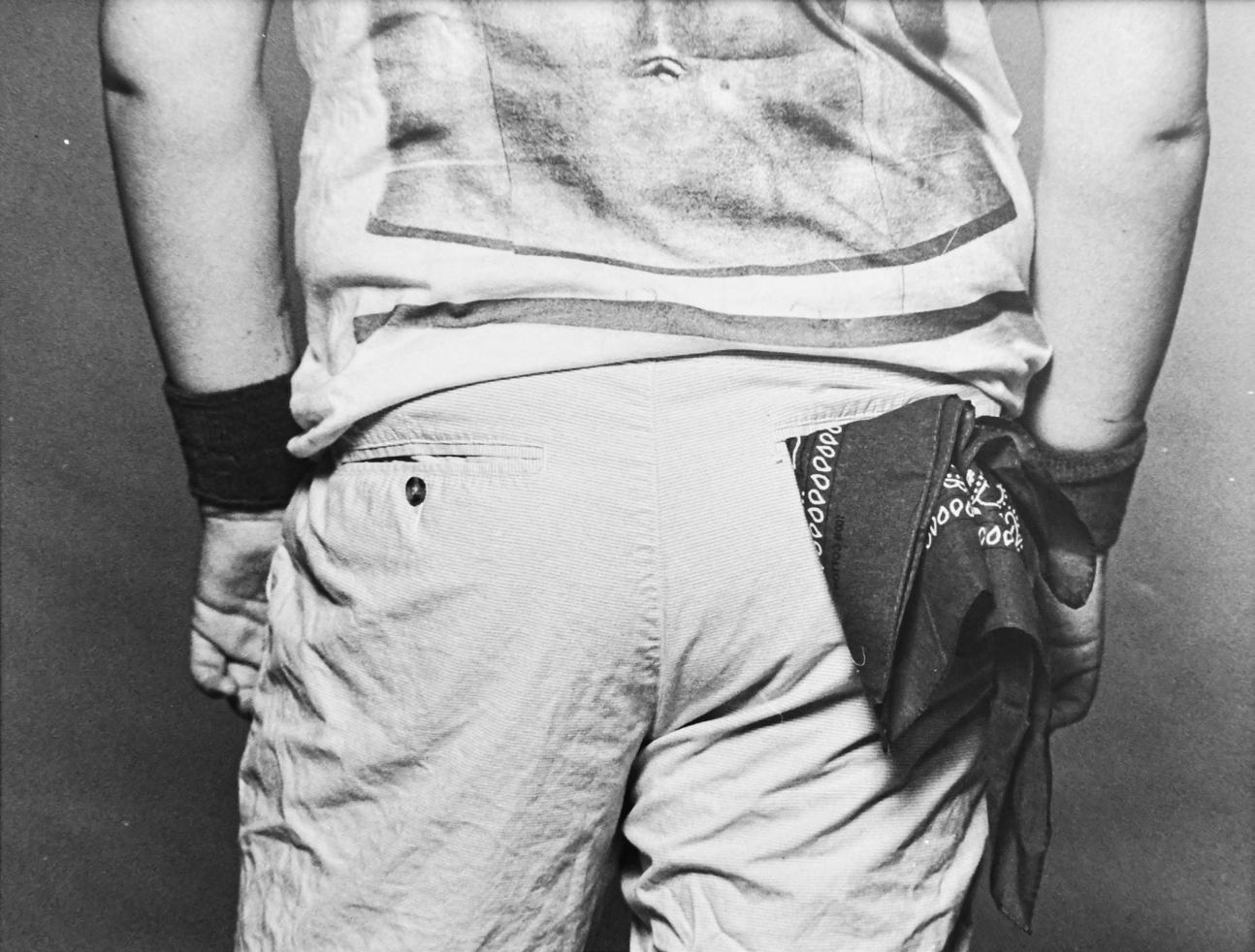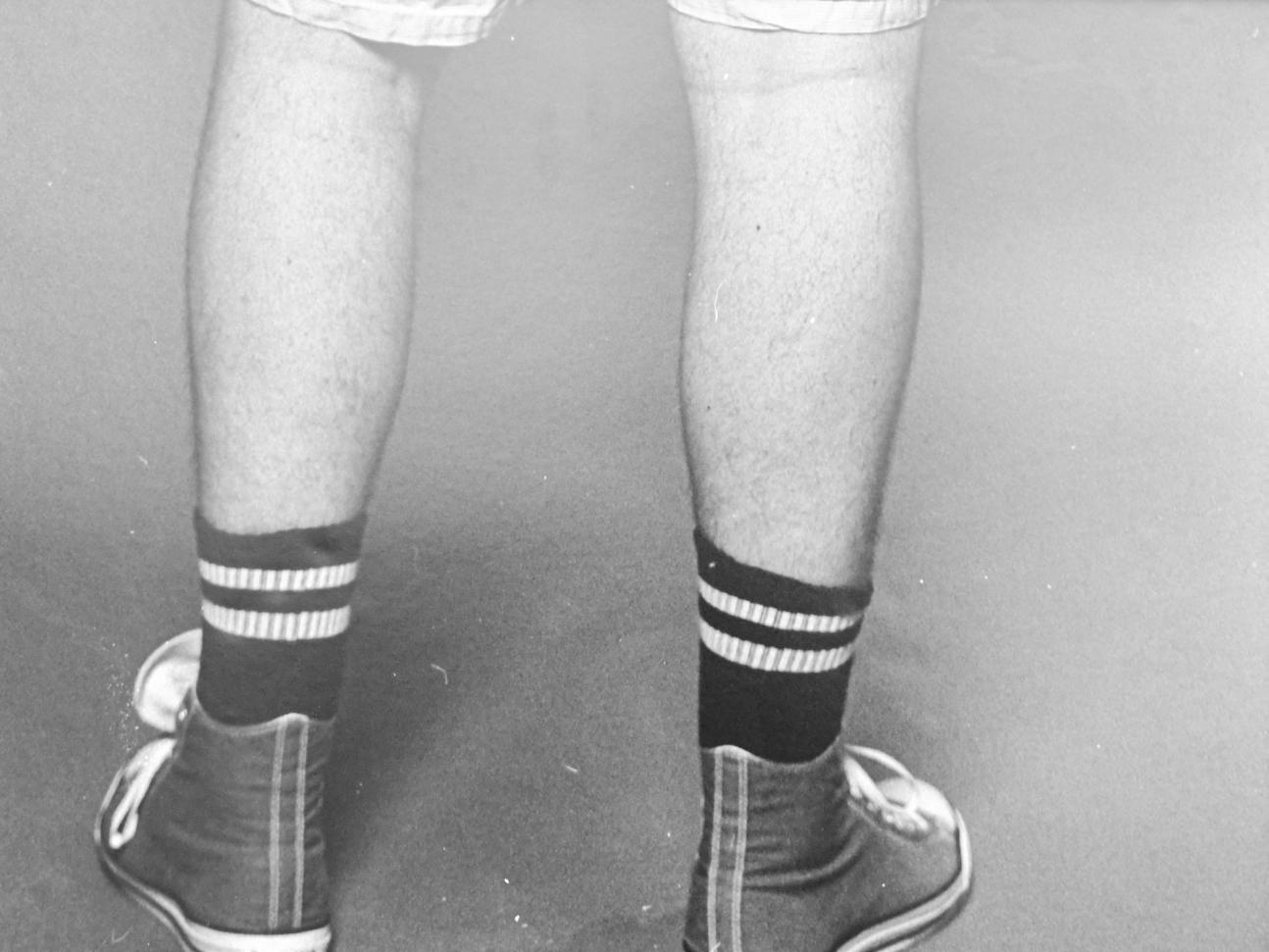





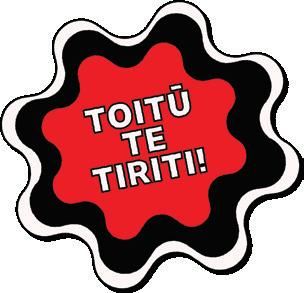








“You’re a cunt.”
I said to my labrador at 5-years-old after he pushed me over.
I was met with shocked faces around the kitchen, and a few giggles.
“Don’t you say that word,” my mother growled.
I learnt the word meant a women’s genitals. A bad word. The lesson stuck with me, not to mention my mother will bring it up as a funny anecdote.
With the word being censored so often, it is difficult to know it's true origin. The word ‘cunt’ most likely evolved from Germanic into the old English “cunte”, or the old Frisian “kunte”, the Indian goddess “kunti”, or old Norse as “kunta”.
In the medieval period, it was the most common medical term for female sex organs and wasn’t considered offensive.
It was even recorded in place names, including ‘Gropecunte Lane’ in 1230 London, which became a common place name for streets associated with sex workers.
But by the 1700s, cunt had been well and truly branded negatively. In 1785, A Classical Dictionary of the Vulgar Tongue defined cunt as: "A nasty word for a nasty thing."
But today, many slang words like “slay”, “read”, “throw shade”, “pussy”, and “cunt” began their rebrand with black trans women and queer people, particularly in the New York ballroom and vogueing scene. For example, in 1995 a drag queen in the scene, Kevin Aviance, released the song Cunty (This Feeling). Beyoncé was later seen sampling the song in her Renaissance track Pure/Honey in 2022.
But with drag and queer culture slowly becoming more mainstream, the word “cunt” has made its way into many young people’s vocabulary, including my own.
I often notice how easy it is for my queer friends to drop the c word. But I think this is because they exist outside of the norms that made the word offensive in the first place.
Queer writer Amelia Abraham says in her Art Review article that queer people “exist both within and outside of the heterosexual power relations that make ‘cunt’ misogynistic to begin with”. She says “cunt” challenges the cisgender paradigm, “You don’t have to be a man to desire cunt or to call someone one. Nor do you have to be born with a vagina to ‘serve cunt’.”

Historically, it seems that when someone who isn’t a cis straight man uses the word cunt, it's seen in bad taste. But queer people aren't trying to appeal to the straight male gaze. These rules become irrelevant.
Living in this state of pleasing men is perhaps what stopped me from using the word in the past. To utter a word that was only okay for men, is to break from that ‘good taste’ and leave me seen as masculine myself.
But watching the queer community, a community that has been so sexualised reclaim a word like ‘cunt’, inspires cis-women like me to do the same.
Before the reclamation of ‘cunt’, I can’t think of any words for a women’s genitals that are empowering. So, I will use it proudly, and my friends can laugh at how straight I am.
I facetimed my mother to test the word on her 15 years after my initial telling off. I leant my phone against the wall to show her a new coat, the one I'm wearing in the photo above.
“What do you think Mum? Isn’t it so cunt.”
She gasped.
“Don’t you say that word.”
That’s it. The same response I was given at 5-years-old.
I’m left knowing the reason this word will still hold shock value for years to come. Because a woman saying "cunt" is like a woman saying "fuck the patriarchy".
Love, Sammy.


22 JULY 2024 MASSIVE MAGAZINE
The first week of the semester introduced new faces to Albany halls, with an increase in the mix of international students from different countries.
Mariam Idkhafif is from Stuttgart Germany and wanted to use the opportunity of being a masters student to study abroad after doing an undergraduate in Singapore.
“I wanted to go to a different place this time and really make it count.”
For the most part, international students on the Auckland campus were on a decline previously, with 1,644 full-time equivalent students in 2021 dropping to 1,107 last year.
But as of April this year, 1,138 full-time equivalent international students are on the Auckland campus.
Massey Auckland is often called the ‘international campus’ by staff around the country.
Opri Hakola is currently doing an exchange program from UV University of Amsterdam after moving from Helsinki Finland two years ago to study.
“I’m a really big fan of nature and it's amazing how New Zealand has such a big variety of different types of forests.”
Hakola was excited for New Zealand’s half yearlong courses, as Netherland courses are only six weeks long, “I don’t feel like you really get to tap into the deeper theory”.
Kelly Manning, national manager accommodation services, confirmed there had been an increase in the mix of international students this year in Auckland.
“It has created a vibrant cultural tapestry where students can learn from each other, appreciate different perspectives, and develop a global mindset.”
She herself appreciated being able to learn from student’s from different countries, “Interacting with students from various backgrounds allows us to gain a deeper understanding of different cultures, traditions, and viewpoints.”
She hoped the new hall residents will feel safe, and take away friendships and a sense of belonging.
Distance Massey student Lina, originally from Iraqi in the Middle East, is fundraising for her good Palestinian friend, Walaa.
Walaa is 24-years-old and recently graduated from studying medicine. She has been unable to further her studies due to the ongoing genocide in Gaza.
Walaa has five siblings, all who have been denied the opportunity to continue their studies, including her youngest sister, Sama, who is 13.
The Massey Students Justice in Palestine (SJP) are starting their fundraiser raffle for Walaa, with student’s art and crafts for sale on the Wellington campus.
Walaa’s GoFundMe has raised over $85,000, just over halfway to the goal that will help herself and her family evacuate when the borders reopen.
The Diverse Minds club in Palmerston North are fundraising for aid by asking students to buy items like photos, poems, art, affirmation cards, crochet accessories and a raffle ticket for a crochet blanket.
Jess Goodman, the president of Diverse Minds said she really wanted to be able to utilise the amazing community of people connected to the club to to make a positive impact on people who are going through unimaginable trauma and loss.
“The more money we raise, the more families we can help.”


All proceeds will go to the United Nations Relief and Works Agency for Palestine Refugees in the Near East (UNRAW). This is a key organisation out of many that aim to provide relief in Gaza, such as food, medical aid, shelter and much more.
Goodman said $40 will provide one family with lifesaving food and drinking water, while $65 will provide a winterisation kit for one family, and $200 will contribute to safer shelters for displaced families.
Goodman sympathised with the people of Palestine, “Reading about the horrific events happening in Gaza, and knowing the unimaginable trauma, horror and loss these people are facing, I really wanted to help in some way.”
CONTENT WARNING: MENTION OF SEXUAL ASSAULT.
“Police can’t be everywhere, all the time.”
This is what the New Zealand Police tell me in response to local workers and civilians coming forward with their experiences being threatened, harassed and assaulted on Wellington’s Manners Street.
Kaylene Kahuwairo created Facebook group No Manners on Manners Street where these complaints began to spiral.
Kahuwairo, who works on the central street, said she’s been physically and verbally assaulted, nearly had her bag stolen, witnessed indecent exposure and sexual harassment.
She believed this all started when emergency housing group, The Set Up, opened during the pandemic on both ends of the street. One at 57 Manners Street and the other opposite Te Aro Park.
When Kahuwairo was hit by a can of Cody’s on Manners Street, she contacted the police, but claimed they’d done nothing about it.
“The guy didn't even put the statement in the system because I go to follow up a few days and there’s nothing there.”
Kahuwairo contacted Parliament, the police, and the council for help. Only Labour MPs Ginny Andersen and Grant Robertson responded.
She made progress with the help of the Labour MPs, but with the change of Government, the policing got left behind, “We went back to shitsville.”
Kahuwairo isn’t the only one having trouble. Tori Manu, a 21-year-old business consultant, was walking down Manners Street after a night out at 1:30am in May last year and was sexually assaulted by a random man.
In the same month, Manu returned to Manners Street and someone attempted to steal her bag. She hasn’t been back since.
Manu was told by the police that they would contact her with updates on her case she has heard nothing since June last year.
Another victim, Oliver White, was walking through Leeds on Dixon when he was assaulted by two people, giving him long-term head trauma.
You’d think there would be CCTV footage to witness these crimes, but when Manu and White contacted either the police or the council they were told the footage was either broken, blurry, or not at the right angle.
However, the Wellington City Council’s website said the cameras are operated and monitored 24/7.
The council has been looking to cut funding in various places to make room for water pipe repairs. Swimming pools, libraries and the security cameras have the threat of being cut.
This was frustrating to Kahuwairo, “Why not cut some of the $5 million the council spends on social media staff and the photographer who follows the mayor to her official events to take photos for her Instagram.”
When asked for a statement, the Wellington City Council said:
“We are working with DCM (Downtown Community Ministry), the Police and our Pōneke Promise partners on this complex issue, and looking at creative interventions to supplement the strong social support network available in Wellington.
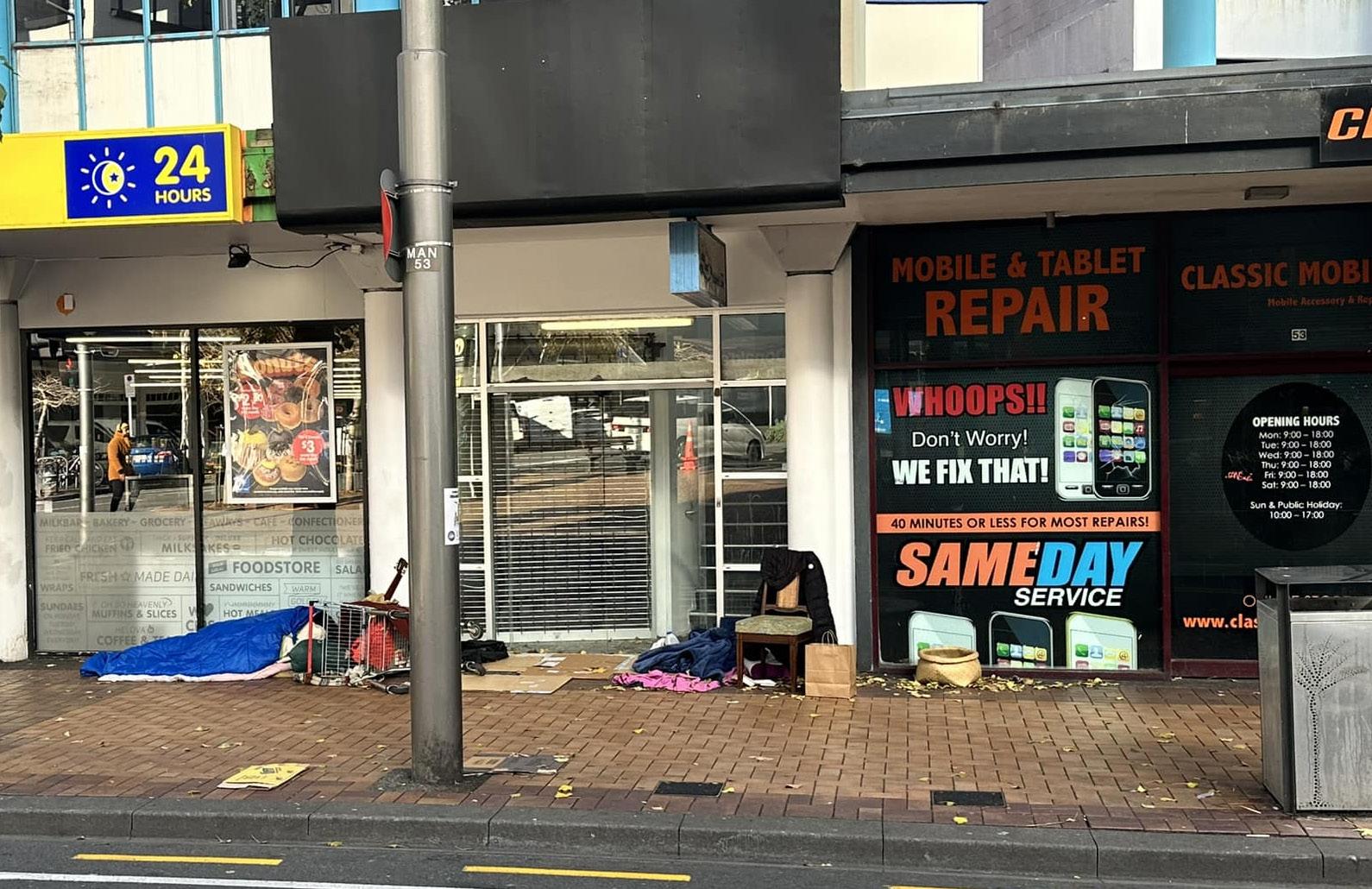
“We work in partnership across external partners and in a holistic approach across council, encompassing our Hāpai Ake and CCTV teams, our ‘Crime Prevention Through Environmental Design.”
Hāpai Ake is a group of council workers who walk through Wellington City ensuring safety and welfare.
Kahuwairo claimed she watches the workers every day doing “fuck all”.
“There’d be a pile of rubbish, some trolley's, some bad behavior going on and somebody smoking a bong in the middle of the street. I would walk past and say, ‘are you guys gonna do anything?’ and they’d go ‘have you called the police?’.”
The New Zealand Police said in a statement, “Police conduct regular foot-patrols through Wellington streets, with an increased presence during weekend evenings and during events when there are a number of people out in the street or at venues.”
I wasn’t surprised to hear this from them: “Police can’t be everywhere, all the time.”
“We offer safety and prevention advice to local businesses, and we work in partnership with key stakeholders with the ultimate goal of a safe and vibrant city with less victimization.”
Downtown Community Ministry director Stephen Turnock said they had been working on decreasing the population of homeless people in Wellington City.
“The problem is far too big for us to solve, and it does take a collaborative approach to reduce homelessness in Wellington.
“You can't just click your finger and make them disappear, we can't just lock them all up.”
Turnock is right that these people can’t all be put in prison. But ultimately, the future of welfare for Wellington strictly relies on the council’s choice between budget cuts, and the safety of residents.
For now, I imagine the Manners on Manners Street Facebook page will continue to highlight Wellingtonians’ stories, but also warn those next to take a walk in the city.
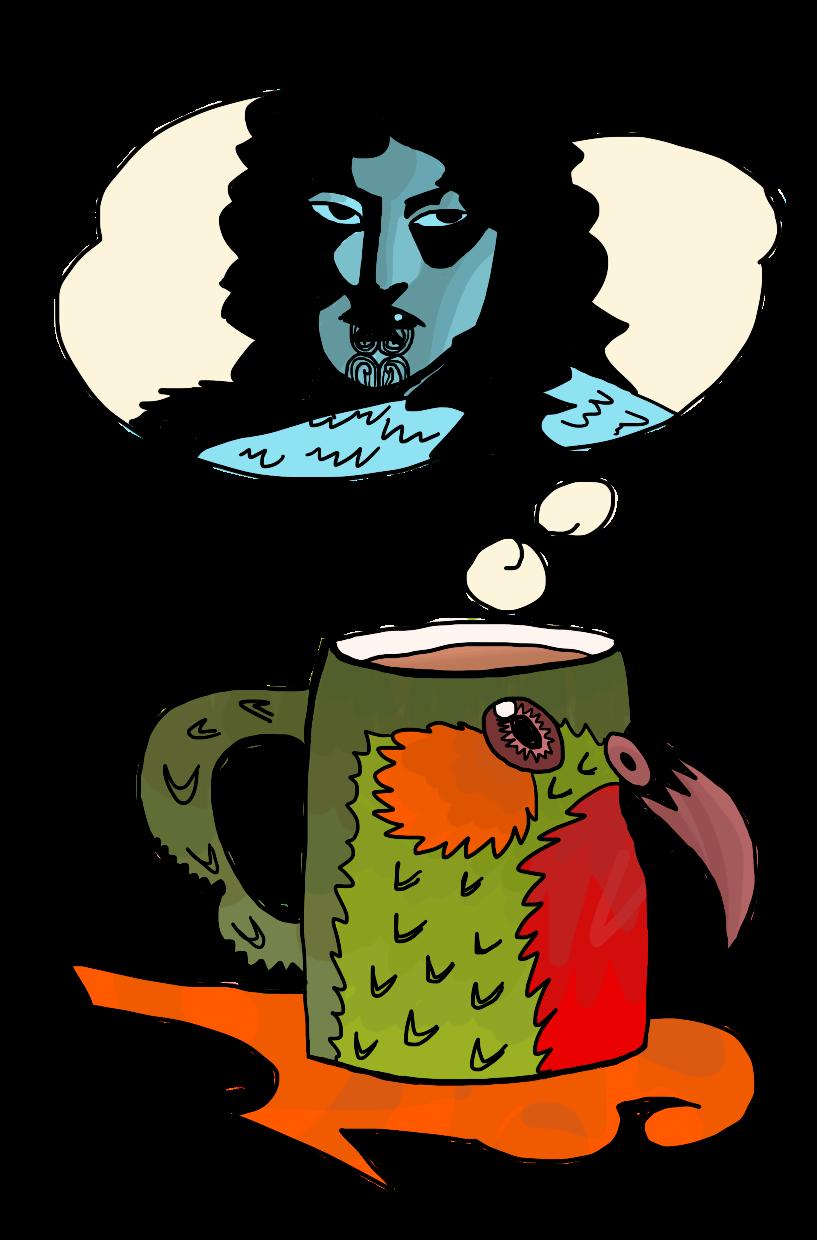
I walk into my close friend's flat without knocking and make myself at home at her kitchen table. She laughs at my audacity, at the way I treat her home like it’s land to reclaim as she joins me at the table. When I look at her, Emma Stein, I see a woman who has learned to carry the weight of years of putting up with the patriarchy and still make space for other women. When Emma looks at me, she sees a wāhine that, while not exempt from the patriarchy, has grown up with a supportive whanau and culture that recognises the inherent mana wāhine have within them. At that table we look back on the consequences of patriarchy on Māori society and Aotearoa as a whole, and its effects on our own experiences as women.
Emma turns on the jug to make some tea, and we start talking about how patriarchy has been a plague upon Aotearoa since the colonists first landed on our shores. While Aotearoa is placed high in terms of closing the wage gap between genders on a global ranking, our country still struggles with gender roles and expecations. Emma agrees that something must change, “We’re all out here fighting tooth and nail for structures that just don’t work”. She says, “we’re now trying so desperately to push back while also keeping ourselves in balance”.
It is tragic to me to discuss how we must claw towards a society that values its people in equal measure, because that is exactly the society early Māori lived by.
Most academics attest to there being little to no restriction imposed upon Māori wāhine and the role they could play in their lives. Many wāhine acted as rangatira within their iwi and owned land to secure their mana and survival. But as colonisation and its effects overtook Aotearoa, wāhine were quickly subjected to sexist ideas from the settlers.
Only 12 wāhine were permitted to sign Te Tiriti o Waitangi, with most other women like rangatira Hine Aka Tioke being turned away due to English laws and constitutions. This enraged many Māori at the time, with their hapū and husbands often refusing to sign out of solidarity. But this initial exclusion paved the way for wāhine to be slowly erased from history and society. Looking into the steam of my tea, I felt the same rage my ancestors would have felt. When I explain this erasure to Emma, she is sad but not surprised, “Somewhere along the line, we lost the ability to appreciate who we are and what we can do as women.”
This loss has trickled through the centuries to haunt Emma and I in our childhoods. This, she tells me, is where the patriarchy first influenced her demeanour by demanding certain behaviours. It is also where I first noticed how our different cultures lead us to different paths. We speak about how we were both sensitive children growing up and were frequently brought to tears by things that others thought were silly. Emma recounts that she was often given advice to the tune of “don’t react, don’t bite”. She was often made to shut down her emotions in favour of acting more “placid and balanced”.
But growing up Māori, while I was also met with similar advice from outsiders, I was encouraged by my whanau and iwi not to listen to it. Whenever a boy sent me home with tears in my eyes, I was told to stand up to them (usually in much more colourful language). I learned to fight back when a boy was bullying me, but also to cry whenever I saw fit. I’ve carried this mentality with me as I’ve grown, and as Emma grew up she also decided that the “idea of the quiet, docile little girl is just so unhealthy”.
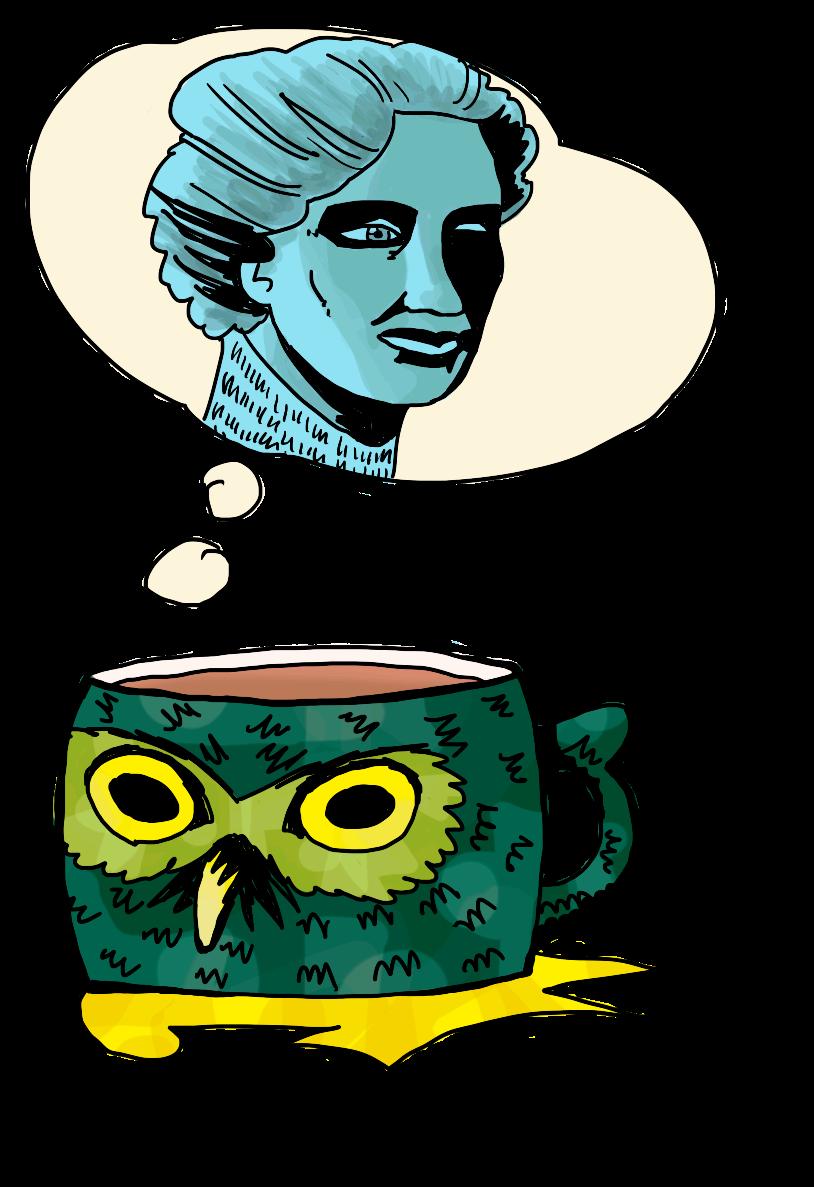
to change yourself just to fit in.” But these early sacrifices have left most wāhine preferring to focus on preserving their Māori needs first, with many feeling that the differences between Māori and Pākehā women are too great to unite in a singular goal.
Looking to the future, there’s a lot that feminists must do to uplift and support the differences our cultures carve in our experiences. In the past, Māori feminists were expected to sacrifice one part of themselves in favour of the other. The suffragist movement, led by Kate Sheppard, required Māori wāhine to pledge against receiving their moko kauae if they wanted to join the Women’s Christian Temperance Union and fight for women's right to vote. Once again, Emma nods along like she’s heard this before, “In early waves of feminism, people would only want you on their team if you were like them or ready
But sitting at a table with an empty mug in my hands, I have never felt closer to Emma. Regarding her ideals, she simply says, “We’ve gotten to a point where feminism is about more than just yourself. You can’t really call yourself a feminist if the only people you’re supporting look like you or talk like you or live like you.” And as our conversation turned to gentler topics, I knew that regardless of our different cultures and upbringings we would always have each other's backs.
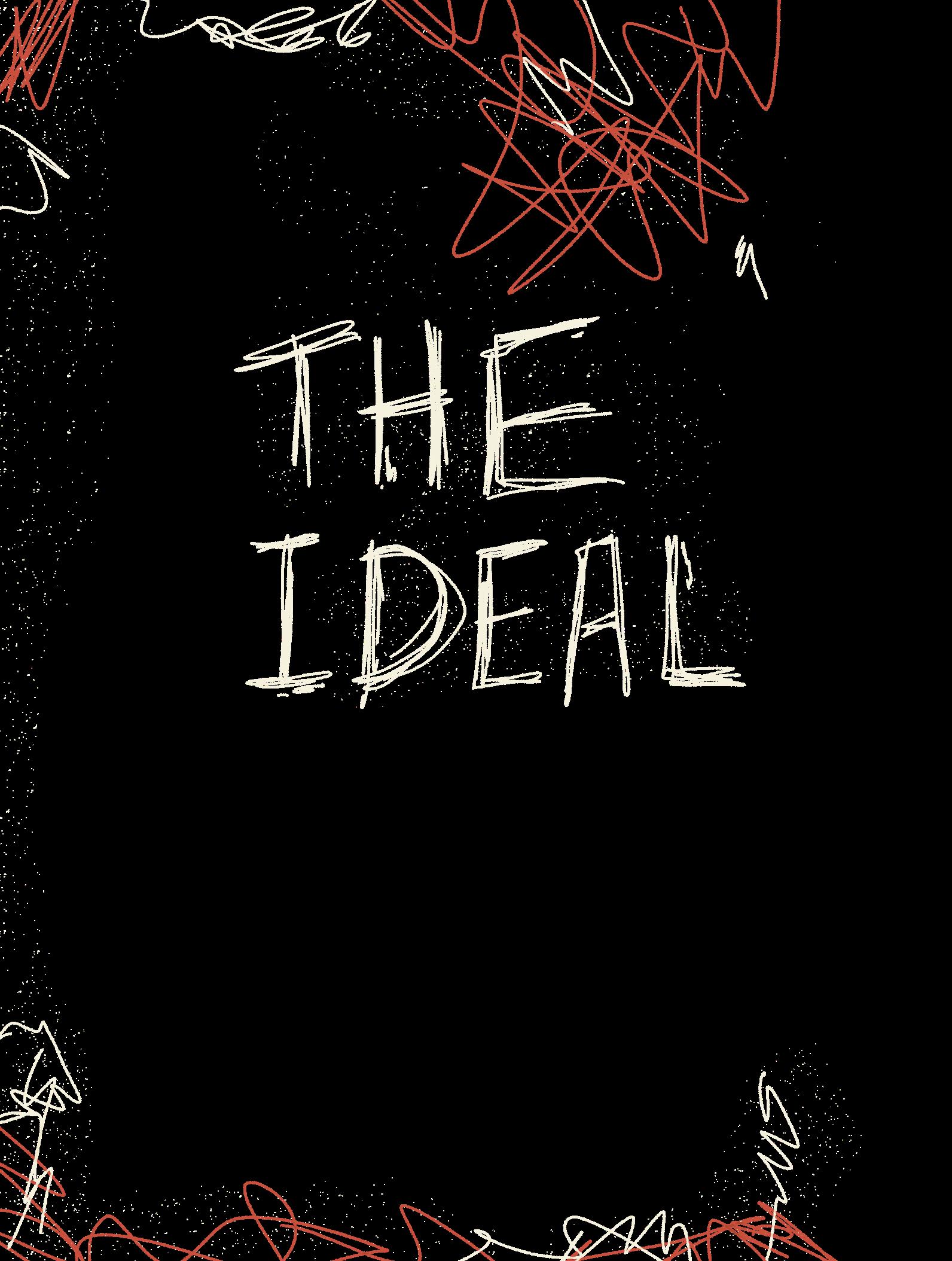
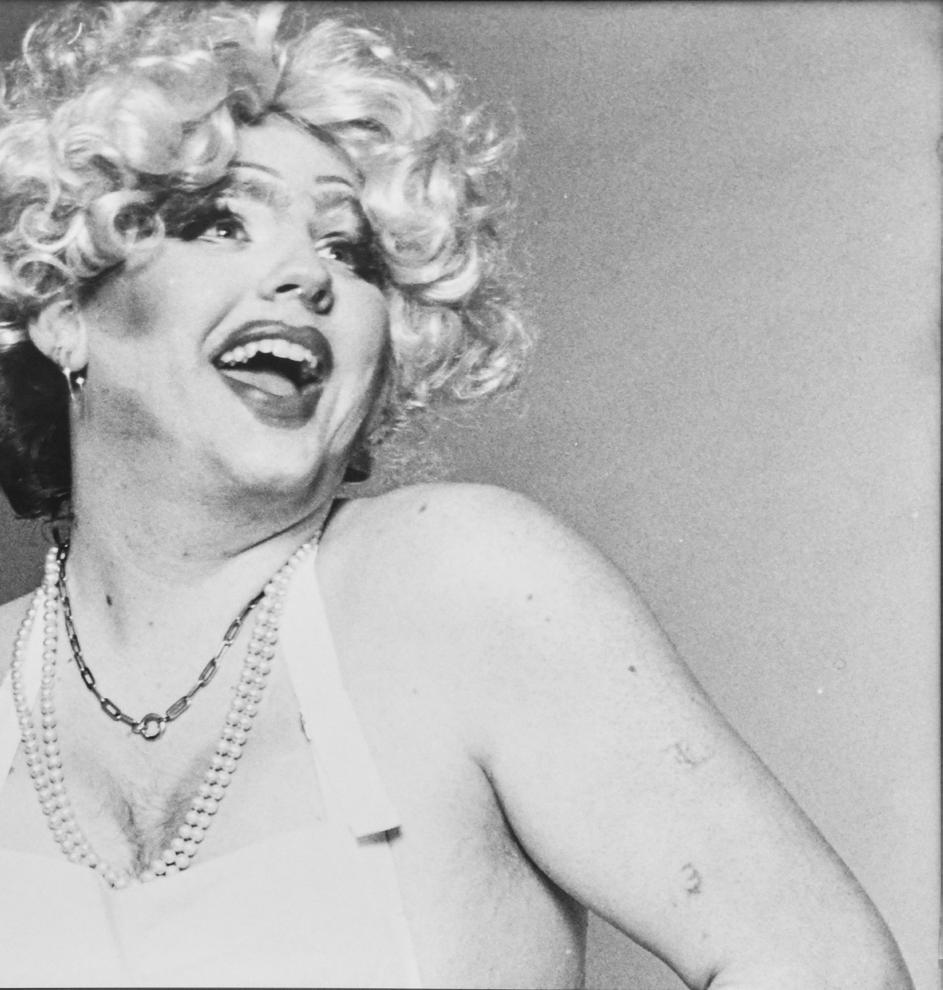

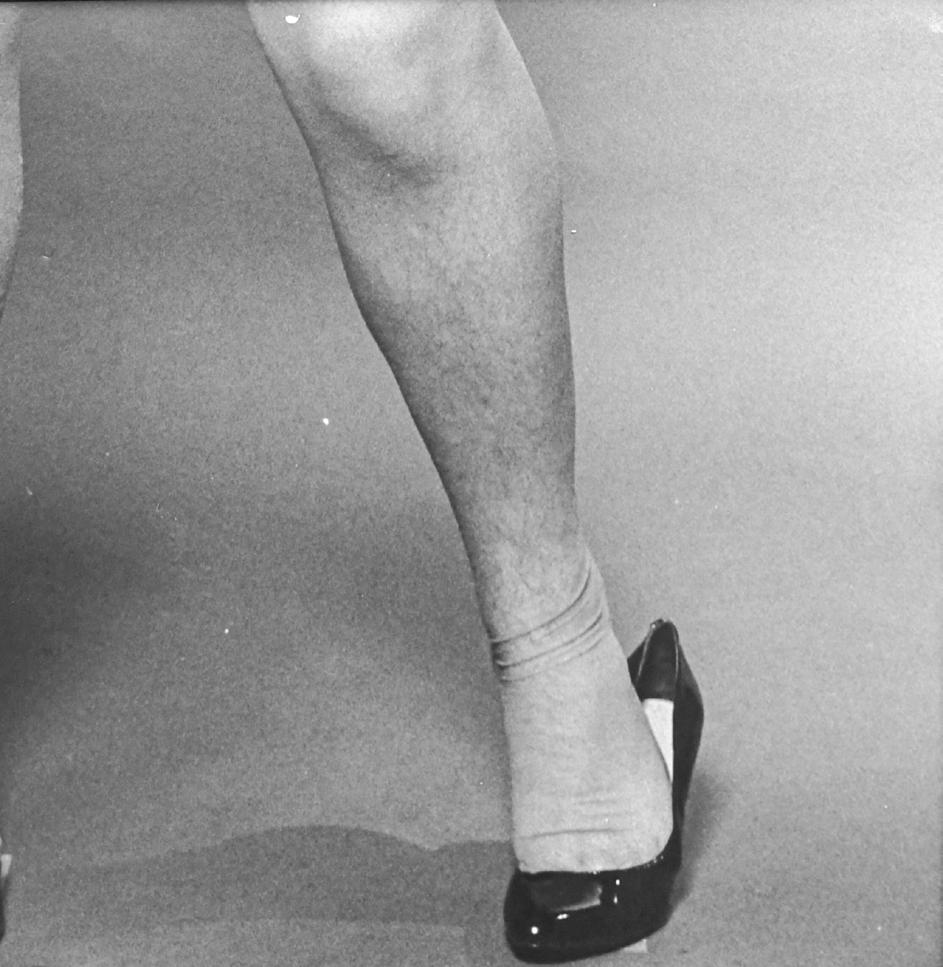

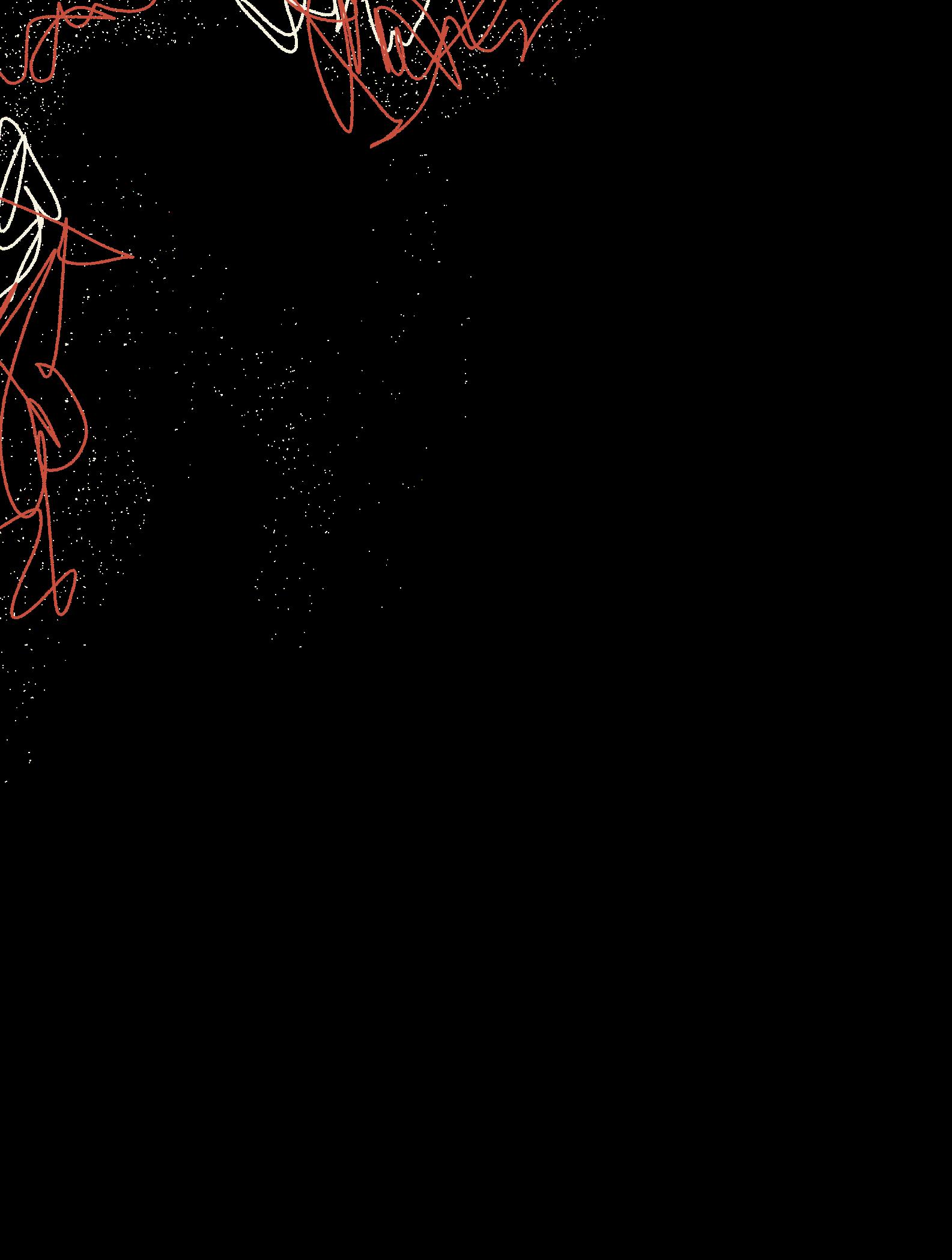
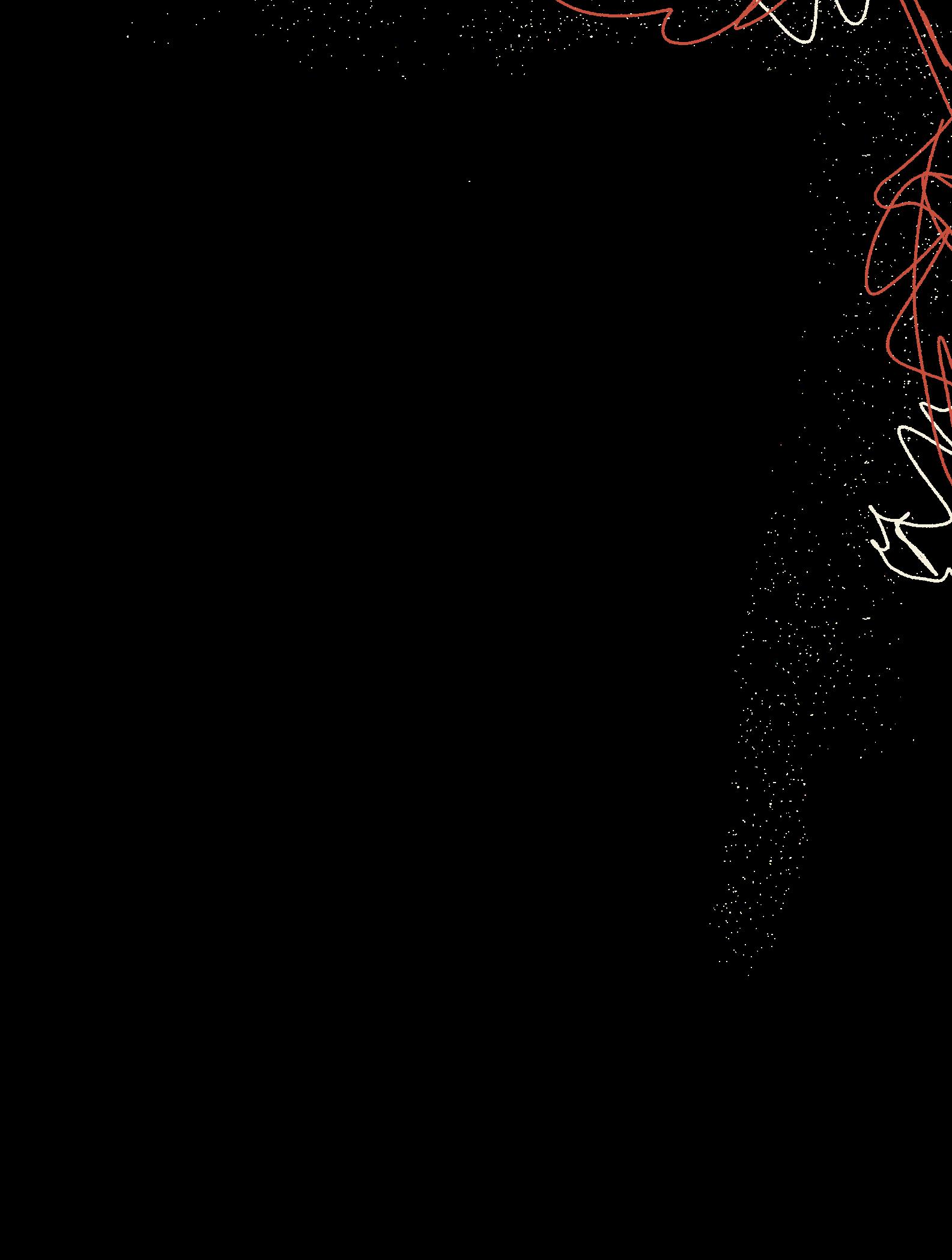
I sit in a room with my mother and her friends, women who protested for women’s rights in the 80s. As one begins to tell an anecdote about how she recently changed a flat tyre, I start to giggle about my own naivety in not knowing how to do so.
An eerie silence takes over as all eyes focus on me. A mixture of shock and disappointment fills the room.
“Why on earth would you say that?” one asks. Honestly? I have no idea.
The 'I’m just a girl' trend began on TikTok late last year, and I joined in enthusiastically. The trend started as a way for women to embrace being feminine, but some feel it's turned into a way to remove accountability for not knowing things. For those like me, who had fallen victim to internalised misogyny growing up, I felt like the trend was helping me reclaim and enjoy my femineity without shame. Together, me and all the girls of TikTok were taking back sexist narratives.
But there’s a stark difference between fighting the narrative and fuelling it.
Is the 'I’m just a girl' trend fighting the sexist narrative, or further normalising internalised misogyny within the mainstream media?
I stand on Wellington’s Cuba Street on a bustling Monday morning asking women what they think.
Blake Highens, 27-years-old and a recent graduate from Otago University’s med school, believes that the trend is unethical to the feminist movement that generations of women before us have fought so hard for.
“You’re minimising yourself and your abilities and jokingly attributing it to gender. Yeah, it’s funny, until you realise that a large portion of the world still believes it. Prove them wrong”.
Soo Gongsun is a self-proclaimed women’s rights veteran. She’s participated in a number of feminist protests across the world such as the 2016 Poland protests of abortion ban, and the 1981 Australian Women with Feminist Disabilities Collective protest.
Gongsun says, “It sounds like this trend is allowing women to minimise themselves as people. Which is a direct effect of internalised sexism.
“It’s disheartening to see because think about how hard we have fought as women to not just be seen as 'just' a girl. We are full humans”.
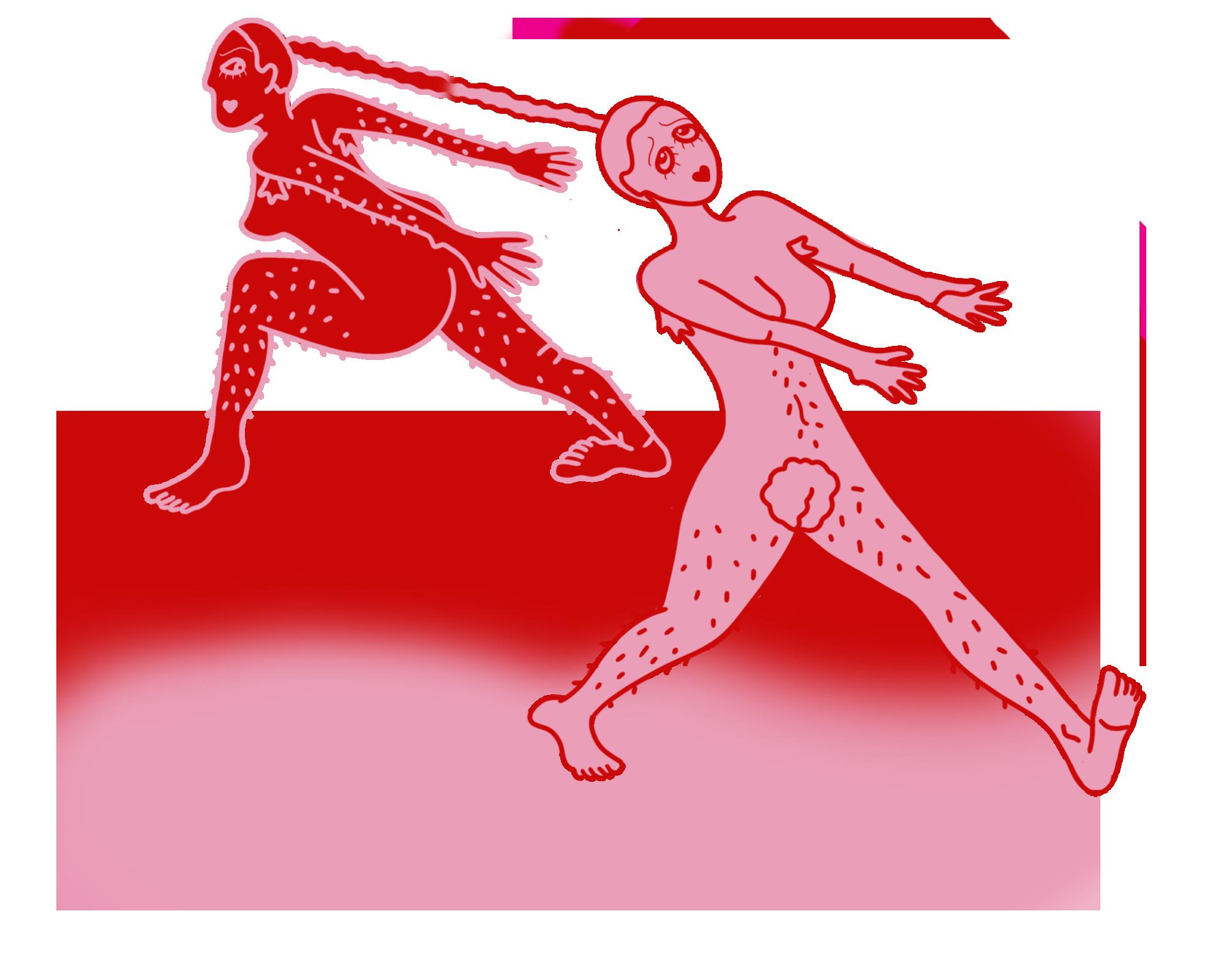
two kids. She said this trend is why she’s afraid for her children to go on social media.
There is one thing Adeoye says that makes me take a step back: “Imagine saying that to a child.”
“What would they think? It’s setting back feminism by half a century”.
Women are smart enough to know the difference between an ironic trend and the self-deprecation of their gender. But the patriarchy’s favourite weapon internalised misogyny can often taint this.
Feminist author Suzannah Weiss writes in her article 7 Ways Internalised Misogyny Creeps Into Our Lives that internalised misogyny “allows women to perpetuate the oppression imposed on them for centuries without any effort on anyone's part”. Women are made to appear the culprits in oppressing each other, with internalised misogyny taking the blame away from the patriarchy.
However, these trends also create a shared sense of camaraderie amongst women. I, for one, loved how
I was able to connect with activities that I shied away from during my girlhood. I now proudly sport the colour pink, outwardly obsessively dissecting lyrics from Taylor Swift songs, and indulging in some good old fashioned retail therapy on a random Tuesday.
Fiona Turrell, a 31-year-old science teacher at an all-girls school, believes the trend didn’t begin as inherently sexist. She felt the trend brought a group of females together to reclaim activities that were demonised during their childhood.
“I witnessed first-hand how excited my students were when the trend began.”
However, she also saw this camaraderie fading.
“I also witnessed when the inevitable turn of the trend began as it morphed into something regressive.”
The trend brought a community of women together to celebrate everything we love about being female without shame. Whether that be nuclear science, getting iced lattes with the girls, playing a game of tackle rugby, or simply loving the colour pink.
However, the patriarchy’s influence has mutated the trend into the implication that women are incompetent, lack basic life skills, are unable to drive, do math, or have a desire to work.
By connecting our flaws or our failures to our gender, it implies that this is the direct result of being female.
There is a line between celebrating our identities as females within a shared community, and fuelling internalised misogyny. I wish we didn’t have to constantly be on the lookout to identify when internalised misogyny strikes again. However, in a world where the patriarchy likes to sow it’s seeds into all of us, we need to remain critically analysing, vigilant, and aware.
Little Woman‘s Jo March put it best when she said, “Women, they have minds, and they have souls, as well as just hearts. And they’ve got ambition, and they’ve got talent, as well as just beauty.”


I am a Christian, but I've never really considered myself as part of a ‘megachurch’.
These huge commercial churches that seem designed to draw people in, chew them up and spit them out with a healthy dose of religious trauma.
The Destiny's churches, the City Impacts... and the infamous Arise churches of New Zealand.
Arise Church is a Pentecostal megachurch that has 10,000 members across 10 locations around Aotearoa. It's known for its live music, enthusiastic services, teen members, and unfortunately a lot of abuse allegations.
In 2022, the church was rocked by a multi-part exposé by esteemed journalist David Farrier, who unveiled stories of the abuse, extortion, and sexual assault, with the founder John Cameron being under fire.
The former leaders, John, Gillian and Brent Cameron stepped down after interns came forward claiming they had to pay $2500 a year to work four days a week for the church's leaders, among other things.
But after speaking to two former members, it is clear that the wounds of women who have left the church are still fresh.
Mary* was introduced to Arise by a friend at 11-yearsold who took her to a big Ol' ‘recruitment’ service.
She tells me, "Whoever can bring the most friends gets a prize. My friend won a pair of Nike Airs because she brought three or four friends.”
Mary describes the church as a "boys club”.
"All those guys that I went to church with were the most seedy and desperate. They were the ones that were asking you for nudes on Snapchat. These guys weren't following the rules at all."
"I did kind of get really attached to the idea of sexuality because I probably thought that was what I was good for.”
Lucy* was 16-years-old and having troubles at home when her friend told her she would find support and community at Arise.
And what she found was a party.
Lucy says, "It was very theatrical, it was like attending a concert.”
"I was having such a fun time and then having like these people saying, 'you're probably having this connection with God right now' and at the time I was like ‘yeah for sure’."
Lucy found the experience to be a form of escapism from her home life, so started to go to every Friday youth group and Sunday service.
She said it was fun for the first few months, before things got weird.
Both women talked about going from valued members of the Arise community, to being sorted into the two classic categories: The ones you fuck and the ones you marry.
Lucy started messing around with one of the youth leaders. He was 20, while she was only 16.
"It was just really awful. We would do things and then he would make me pray afterwards."
"We stopped and then I found out that he had been dating this other girl in the church who was actually his age and they got engaged not long after. He is married and has a baby now, which is wild."
I reach out to Arise, honestly not expecting to hear anything from them. But right before I am about to give up, general manager Donovan Stevens emails me. He finds the women's stories “deeply concerning and not reflective of the experiences we would wish for someone to have as a part of our community”.

Lucy claims she was told by her ‘life-group leader’ after the sermon that abortion was a sin. And after speaking up to disagree, she was left feeling unwelcome to come back to Arise.
Donovan also says the church has introduced a new complaints system that ensures the safety and fair treatment of leaders and members alike, including involving Police and Oranga Tamariki in serious cases involving minors.
Though it’s a bit too late for Lucy and Mary.
In 2022, an external investigation by Pathfinder concluded it was “undeniable” there had been “significant hurts” caused to people involved with Arise and “egregious and systemic failures” in governance over many years.
The report says, “We believe it to be unacceptable that the Board were unaware of key issues within Arise, and did not initiate the necessary mechanisms to ensure they could exercise their governance responsibilities.”
The report included allegations of “cult-like behaviour”, racism, sexual assault and conversion therapy.
Lucy left Arise after a women’s conference called Passionate, where sermons are shared about women’s topics including abortion.
While a speaker spoke against abortion, Lucy sat next to a friend who had recently had one.
"I could just see her next to me looking so uncomfortable and so distraught and that she felt like the worst person in the world.”
Mary left the church feeling angry at the time stolen from her.
"I wish I spent my youth hanging out with my friends on a Friday night, and dressing up in a stupid costume for Halloween and not
thinking about whether abortion was bad."
"I wish I was never a part of it.”
Last we heard, John Cameron, while not being a pastor at Arise, will always be part of its family. He is one of the co-founders after all. His Instagram bio says he is a “church coach” and “speaker”, with photos showing him speaking at various different churches.
In total, 545 people completed submissions for the investigation 2 years ago sharing their stories. Lucy and Mary would make 547.
But after the 2022 scandals, attendance fell across the church’s programmes for young people by 62%.
Perhaps the next generation of teenagers can find support and community in a place that will treat them for what they are children.
*Names have been changed for anonymity




When the time comes, the man will enter his mind and open the door to his inspiration Inside, he finds the walls lined with containers of chilled imagination
Their contents are stuffed with the formless figures of women their beings merely more than a shadow spilling onto the ground
One by one, the women are plucked from their icy oasis and placed inside the world
Their shadows turn into flesh, their bodies become a cage for a heart, yet they breathe no life
Their pretty brows adorned with the crown of their suffering which they do not feel
The man let the cold caress his face its gentle nipping a reminder of his joy
The lined walls a picture of power
Yet, when he opened this container a pair of large, dark eyes stared back at him
Circled inside her cold confines her reddened skin folded over itself. Her knees were pressed to her breasts and her head circled with a mane of dark curls rested on her arms
The woman did not speak Instead, she only watched the man her tilted head regarding him with quiet curiosity
The rise and fall of her chest a wordless taunt
And when the man did nothing did not take her would not place her inside the world the woman smiled reached her hand out and closed the door
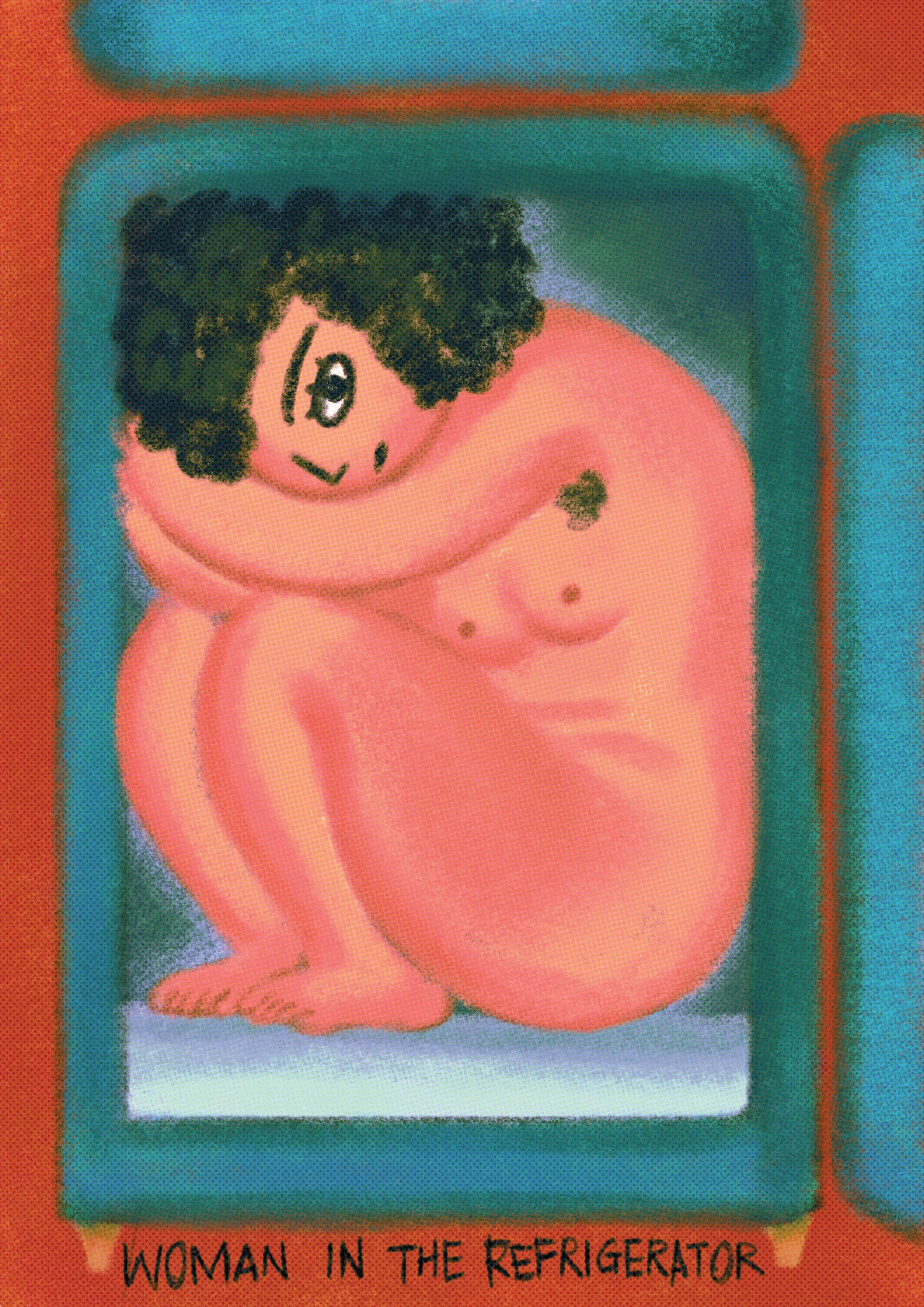
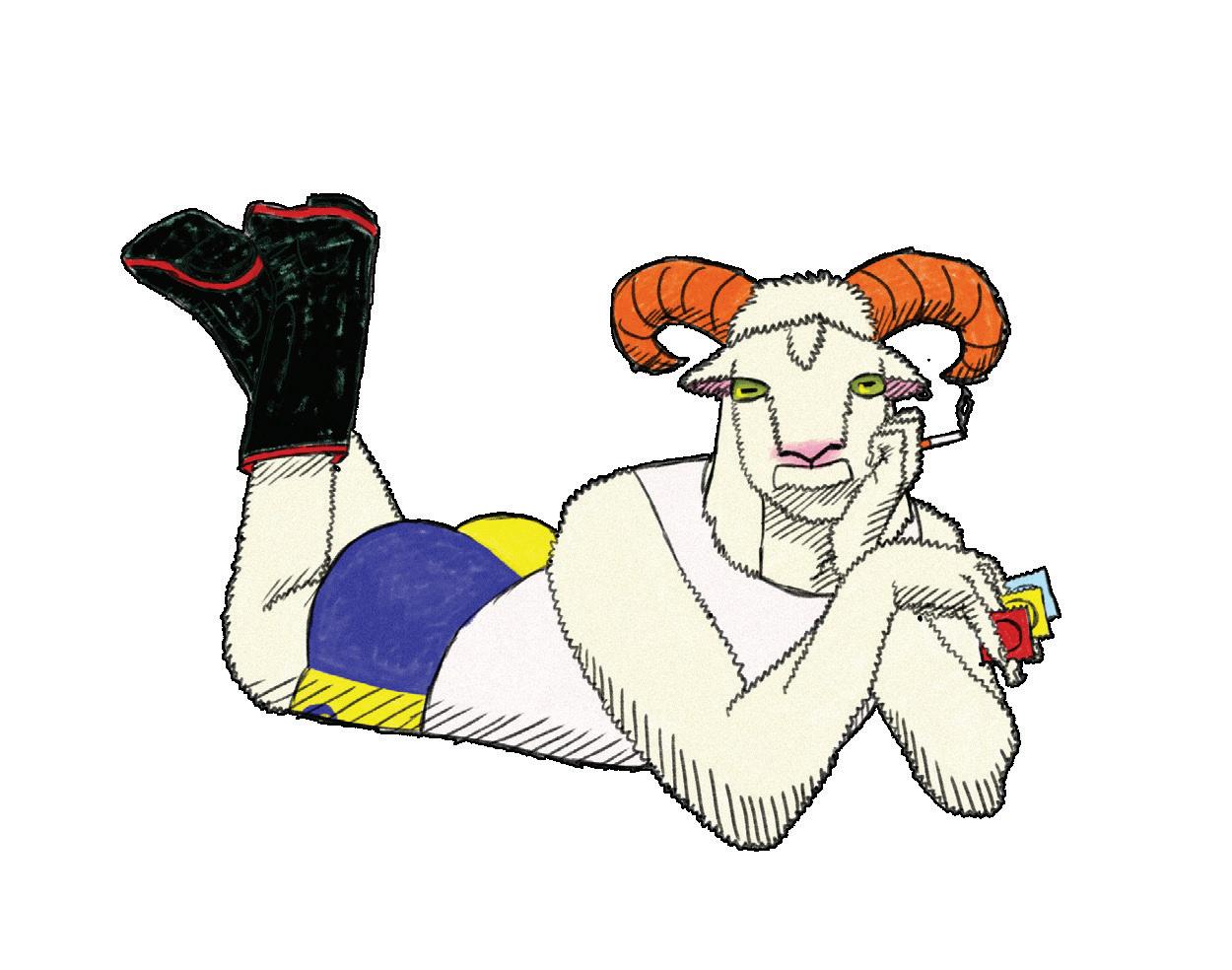
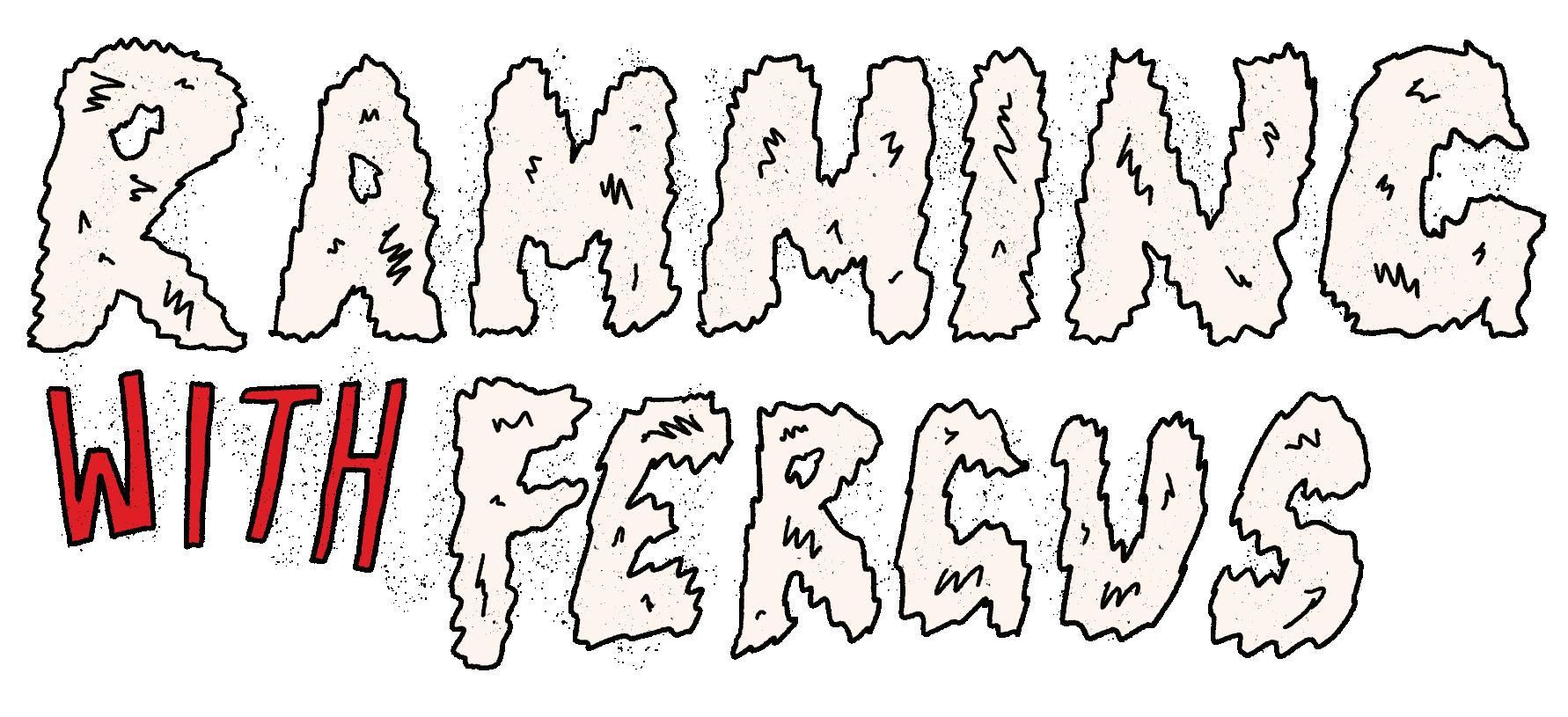
Q. I FOUND GRINDER ON MY BOYFRIEND OF THREE YEARS' PHONE, BUT I'M NOT MAD, IN FACT I DOWNLOADED IT TWO MONTHS AGO AS WELL. HOW DO I TELL HIM I WANT TO SLEEP AROUND, AND HE SHOULD TOO?
You have found yourself in a perfect situation. He knew you guys were open before you even had to ask!
You have had three years of monogamy. Three years to lavish in what Google would call your “exclusive intimate partnership” (soz, I had to google monogamy because I’ve never done it before).
But now you find yourself at a point where you want to be open, or even polyamorous. Most people would be nervous to ask their long-term partner about making this change. BUT ALAS, phone stalking has revealed that his desire matches yours!
My mate down the road from me, Al the ass, was once dating a donkey for two whole mating seasons. He realised he wanted to try being open but was too scared to ask.
I encouraged him to give it a go, and the next time he got a late-night booty call, he arrived to see his lady had already invited a newly arrived horse to their party.
By the end of the threesome, my buddy and his misses barely had to say anything to each other. They just knew open was the way to go.
Am I saying you should have a threesome?
Well, I’m not saying you shouldn’t. But I’m saying it’s clear your boyfriend wants to sleep around too, so there’s no harm in starting the conversation.
But if you’re too scared, leave your phone unlocked and next to him the next time you go to the bathroom. Hopefully, he’ll find out you have Grinder downloaded too and be the one to bring it up first.
Happy fucking everyone!
FERGUS THE RAM IS MASSEY UNIVERSITY'S LONG-TIME MASCOT. HE IS ALSO A SEX GOD, ALPHA RAM AND HORNED UP FUCKBOY. GOT A QUESTION FOR FERGUS? GO TO MASSIVEMAGAZINE.ORG.NZ
For noisy guitar lovers, this was a compulsory pilgrimage to San Fran. Several cars of Palmy musos convoyed down to Te Whanganuia-Tara. Still sloshing with soju and half the menu from Oriental Kingdom, we excitedly climbed the stairs to the venue.
I’ve preached how incredible Feshh were at Camp A Low Hum far and wide, so we made a beeline for the front. Seeing them again was bordering on spiritual, only slightly aided by inebriation. Their stage presence was unmatched, with a unique spin on shoegaze, complete with a captivating singer who guides you through beautifully dense explosions of glorious tone. My highlight of the night was singing Acetone with most of the venue, it’s anthemic. Feshh are Massey Wellington affiliates, so get amongst it.
Macho Macho were up next, bringing outrageous indie ruckus out for one last show before hiatus. These guys have built a real scene for themselves, with a dedicated pit of jumping fans. This was a fun
balancing act for dancing with a G&T, and an example of the special communities that form around local music. Love it. Shoutouts to band member Logan’s promotion enterprise, Goose Garden, who booked the show and are definitely one to follow for good gigs in the capital.
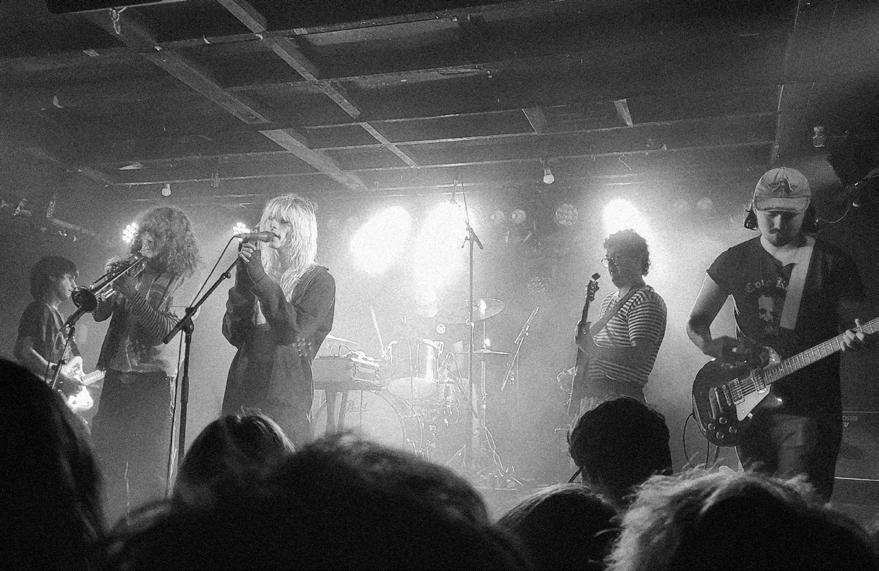
Dale Kerrigan this Ōtepoti outfit knows how to get gnarly and bring out the perfect balance of angst and joyous exorcism. The drumming was absurdly good, and flanked by two steezy guitarists the singer Shlee was shredding some of the chunkiest riffs and screaming into divine feminine bliss. Half of Palmy now has a Dale Kerrigan shirt.
Ending on a bang, Tāmaki Makaurau’s post-punks Ringlets took the stage with tight melodic riffs that got everyone locked in. Celebrating their new 7” record, New Life, you could tell this lot were having a blast away from home. It was a brilliantly loud crescendo to the gig, a lineup for the history books I reckon.
Radiata –Forget
01. Persimmon –Cleaning Graves
02. Just George –She Won’t Go Quietly
03. Carb on Carb –Home Again 7
04. mouth – it gets worse
05. Death And The Maiden –364.1 06. T.G. Shand – Scenes 07. Mystery Waitress – Nightbug 08. Menzies – Spaghetti Land 09. Wiri Donna – The Gold 10. Vagina Dry – Free Palestine HITPICK
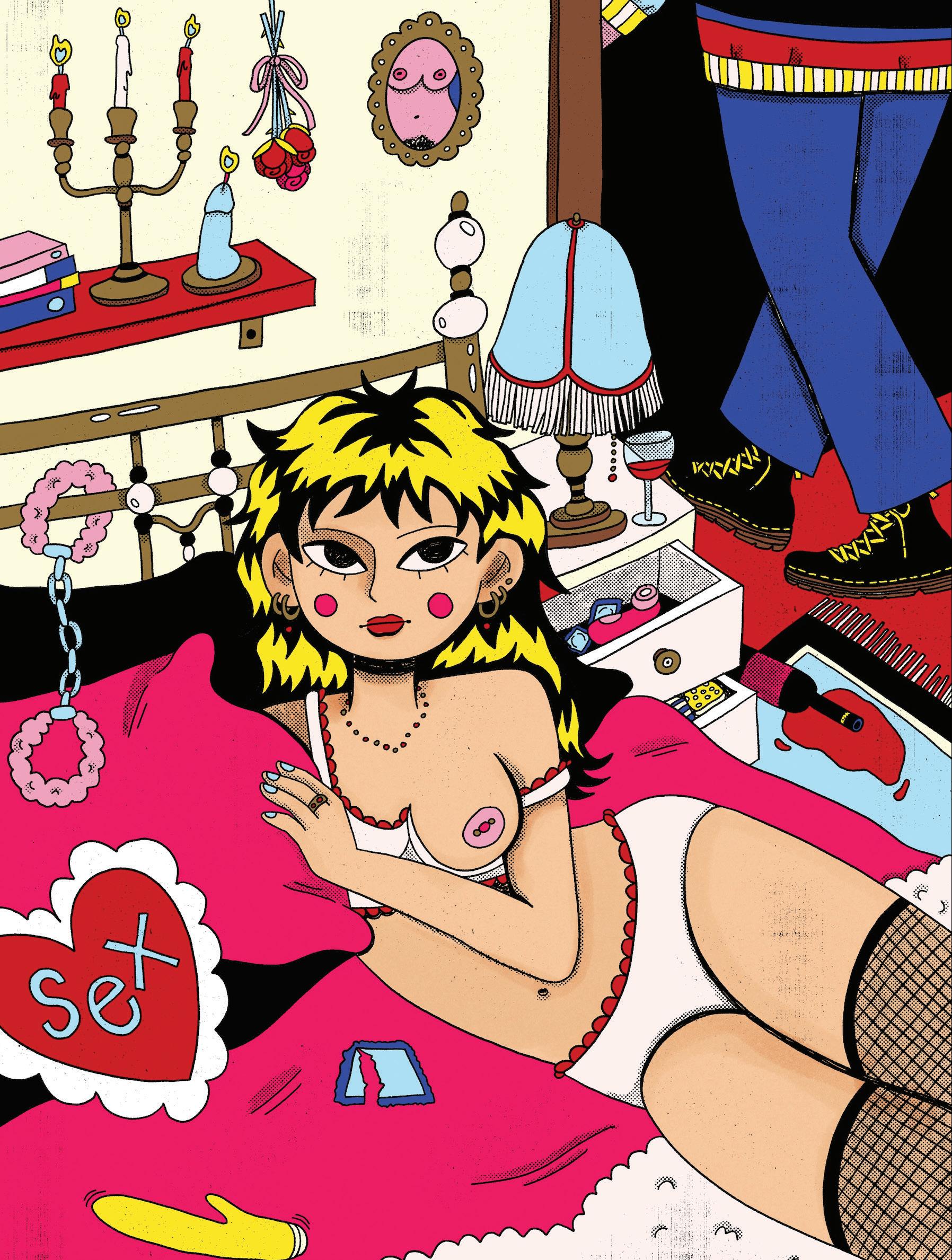


GOT A CONFESSION, A TAKE,NAUGHTY OR A SEXY STORY?

in awe of how stupid we were. We would have sex anywhere, and we really thought we were being sneaky.
For example, the first time he fingered me, we were cuddling on the couch in his family’s living room. His auntie was sitting on the couch next to us. We really thought the blanket was some Harry Potter invisibility cloak. Although no one ever caught us.
But, the first time we finally got a rude awakening was my first time giving head in a car.
My car was parked on the road just outside his house in the suburbs, by the footpath. It was nighttime so that
My boyfriend was in the passenger seat, and I was leaned over with his dick in my mouth from the driver's seat. All was well and fun, we were having a blast.
Until someone, who was just trying to innocently take their dog for a walk, walked past the car. They stopped, looked confused, and tried to see into the car. We immediately stopped what we were doing, he pulled his pants up, and we tried to stay silent.
The person walked away and continued to walk their dog.
The person was our high school counsellor.



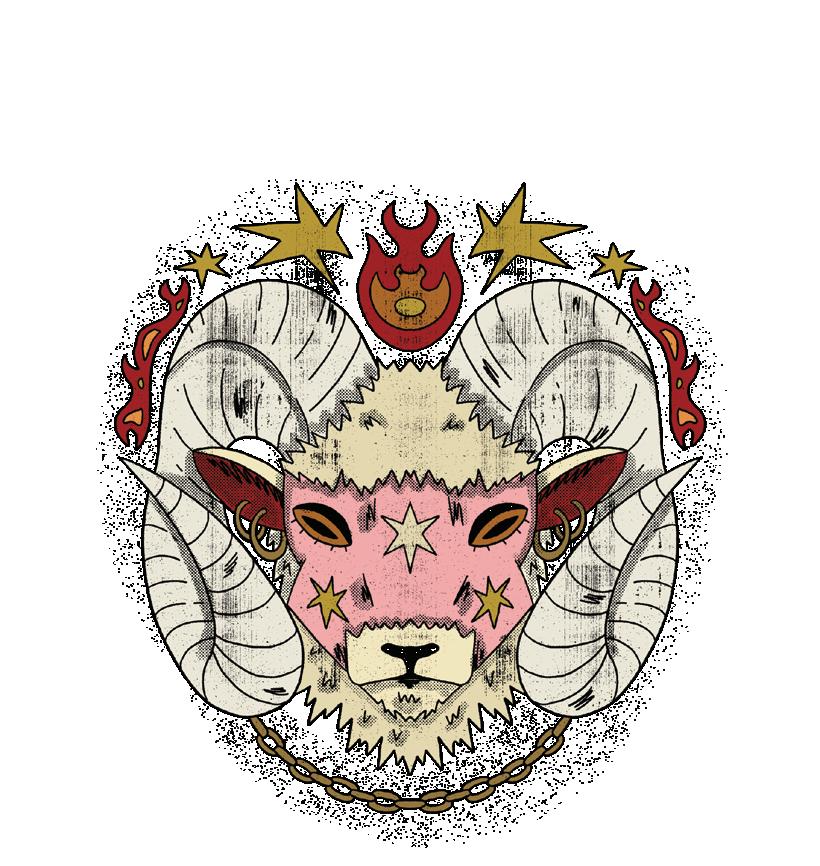



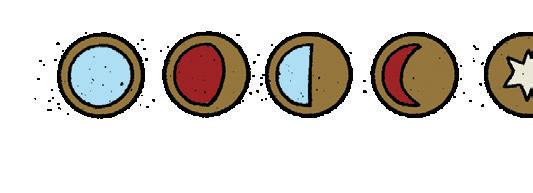
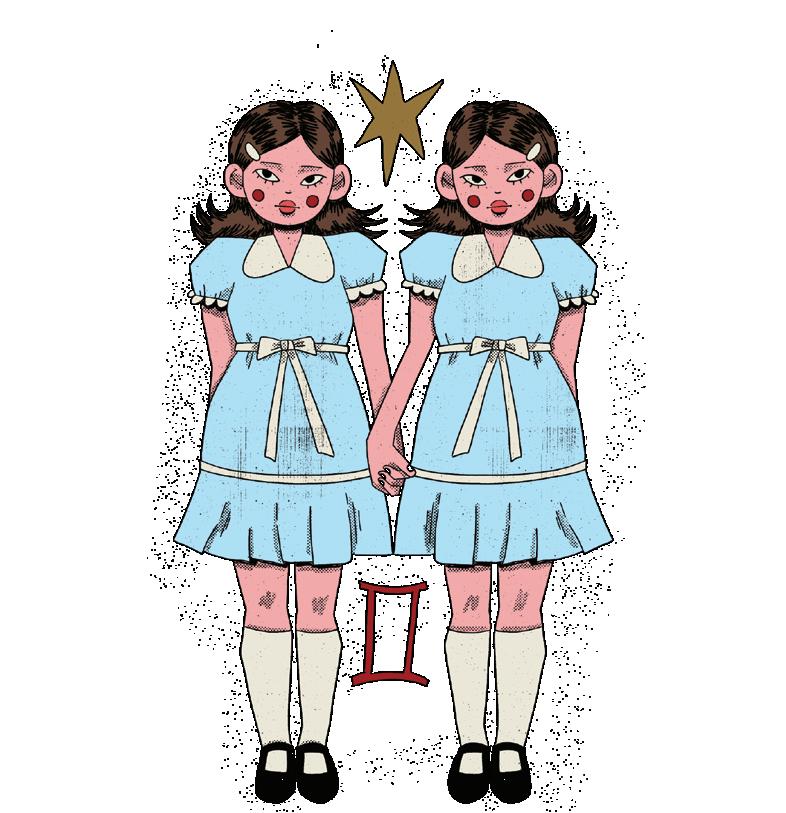
You’ve been going around in circles, Aries. Stop repeating the same routine and take a step in a new direction this week — something completely out of your comfort zone.
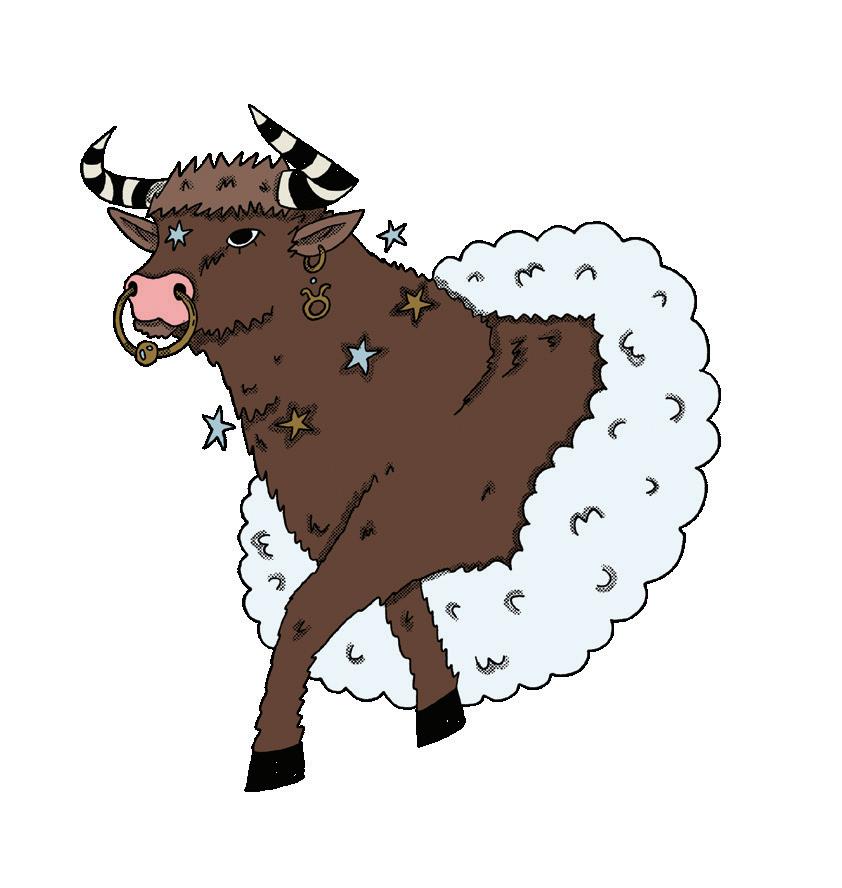
Someone in your life keeps mispronouncing or just completely getting your name wrong. Politely correct them before it goes too far.
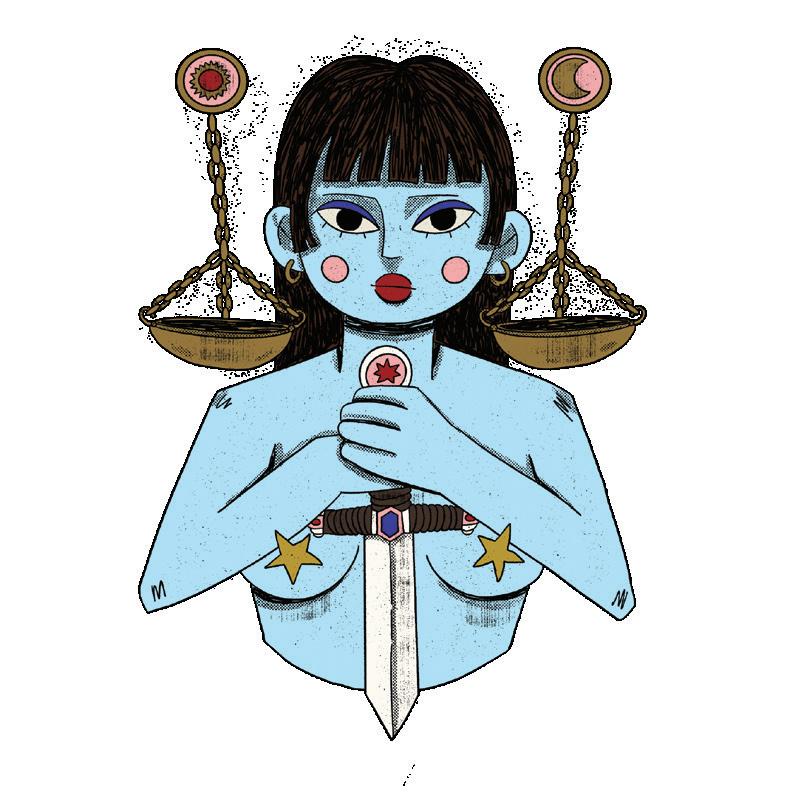

As this week begins, you’ll need to be your own hype man. Someone in your life is going to say something that makes you doubt yourself, so don’t add to the mess by believing it.
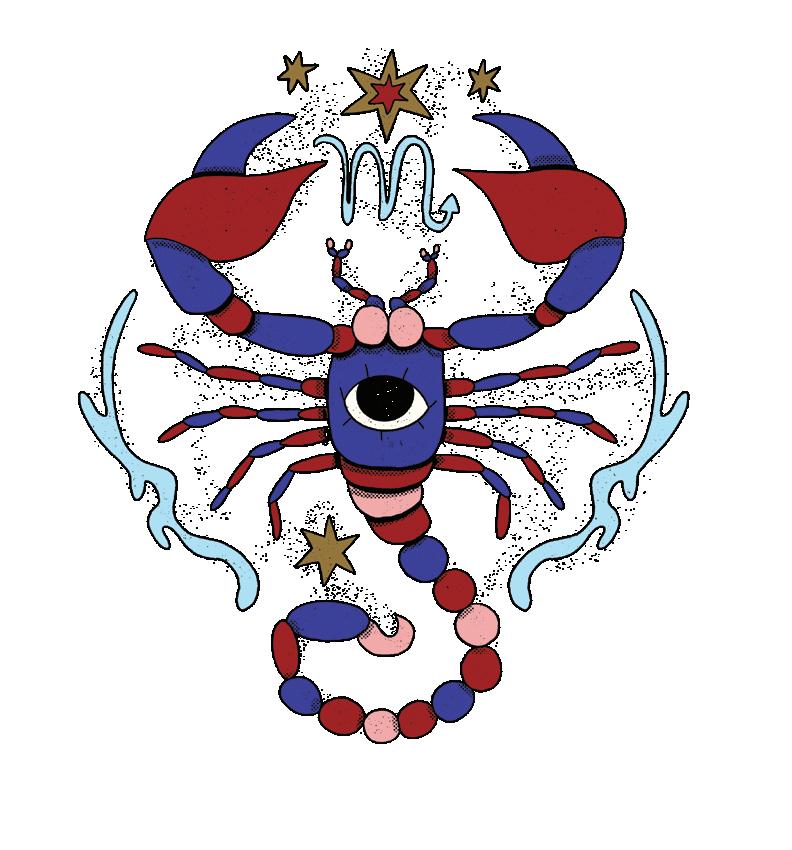
You’ve been snapping at people recently, and it’s starting to hurt them. Take a breather and try to keep any bitchy comments to yourself. You don’t really mean them, you just need a nap.
You're getting close to the wrong people. Take three steps back now! They may seem great now, but they are gonna do you dirty in the long run.
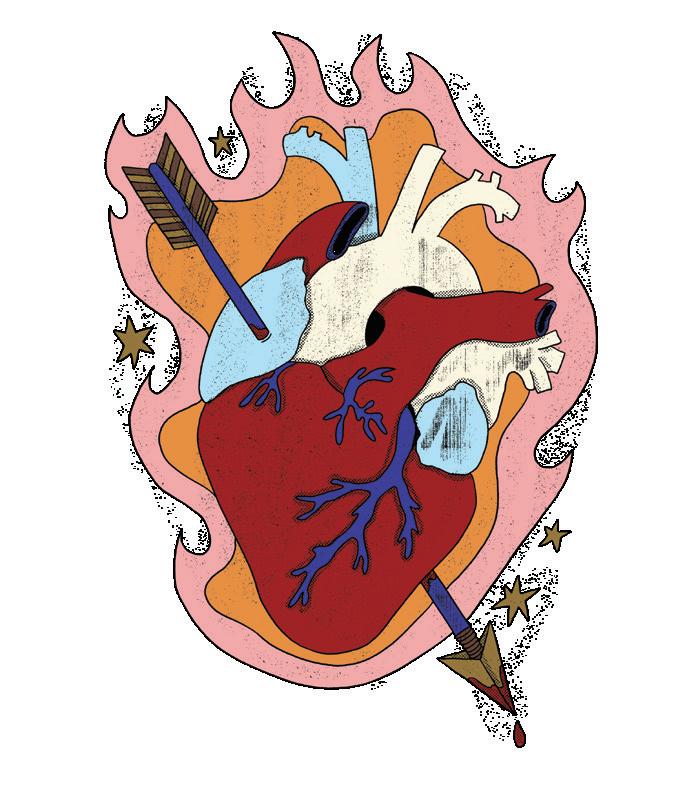

You’ve been oddly quiet lately and people are getting worried about you. If you’re just tryna be mysterious, it’s working. But if not, speak up more so people know you’re okay.

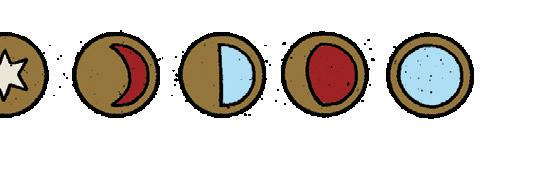

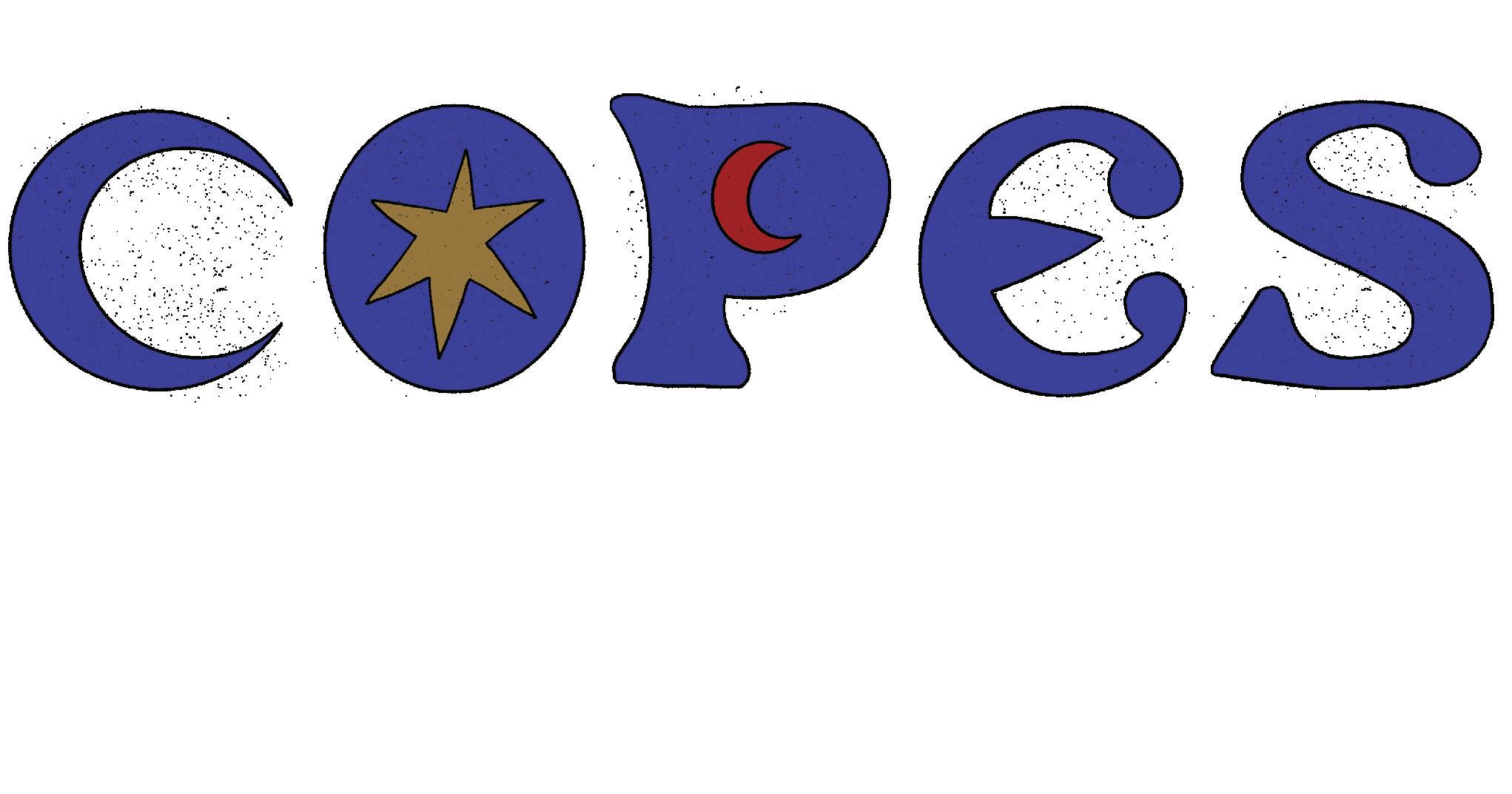
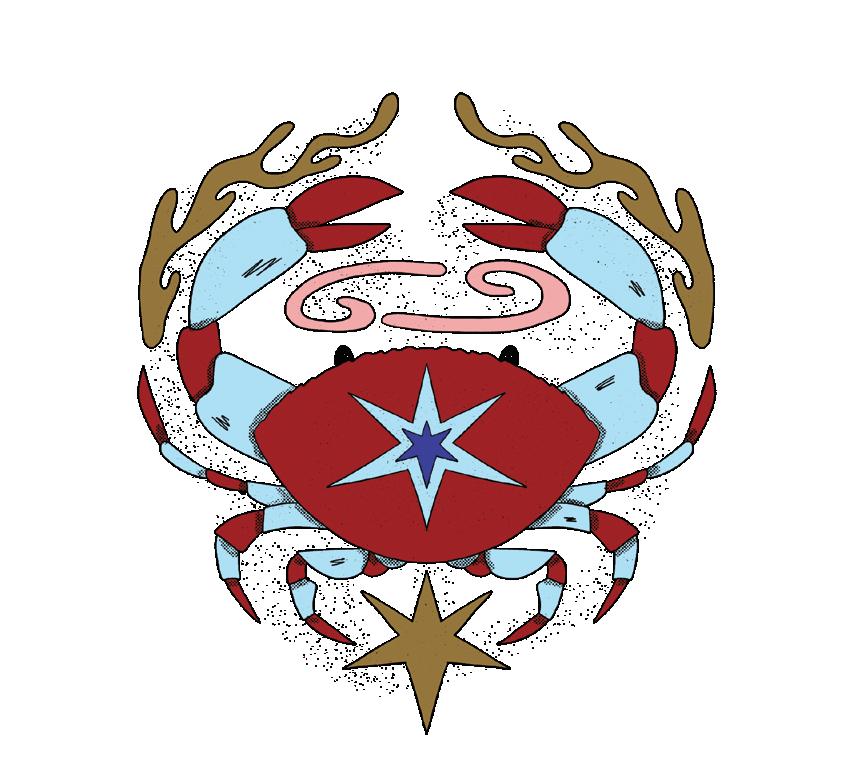
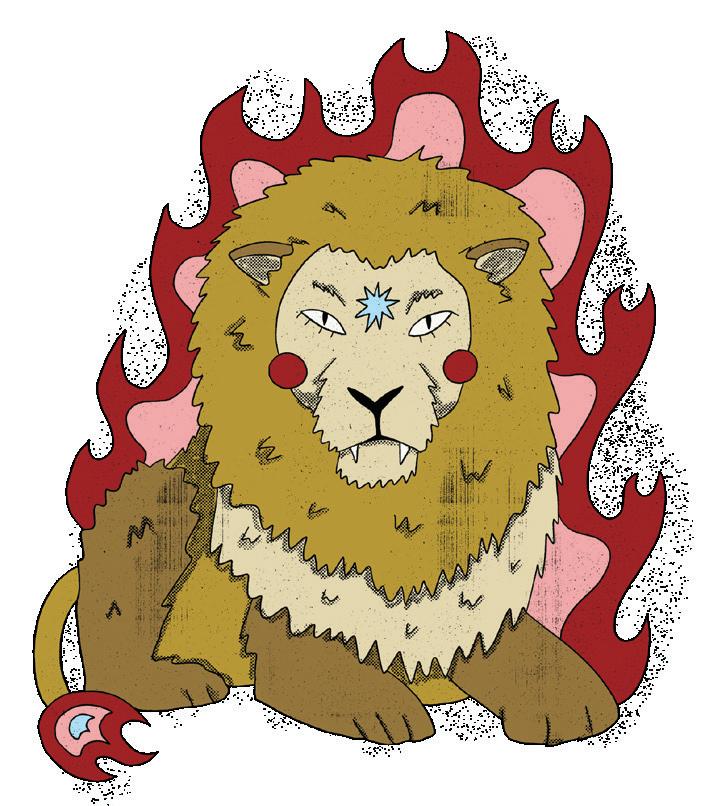
This week, you’ll be It’s nearly Leo season, baby. Relish in making this time all about yourself. Go treat yourself, get a haircut. Get that mane ready for the celebrations.
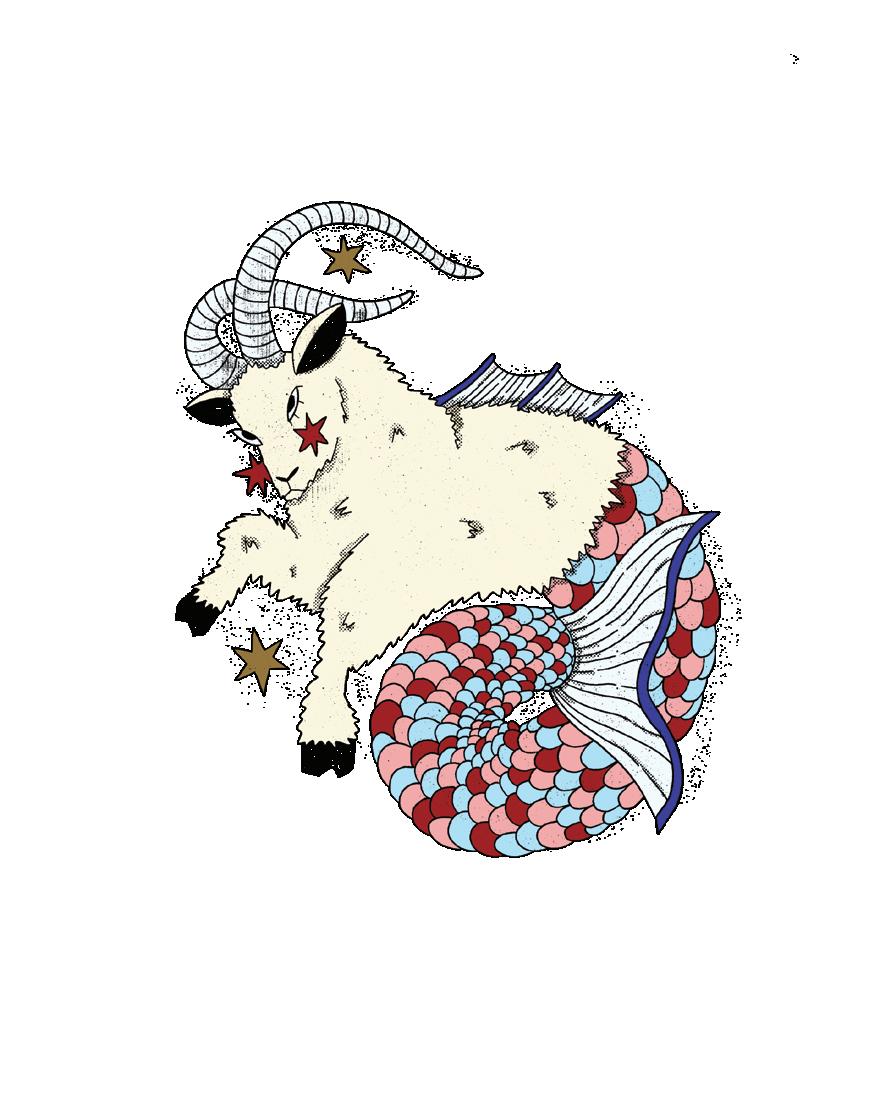
before it spirals into something serious.

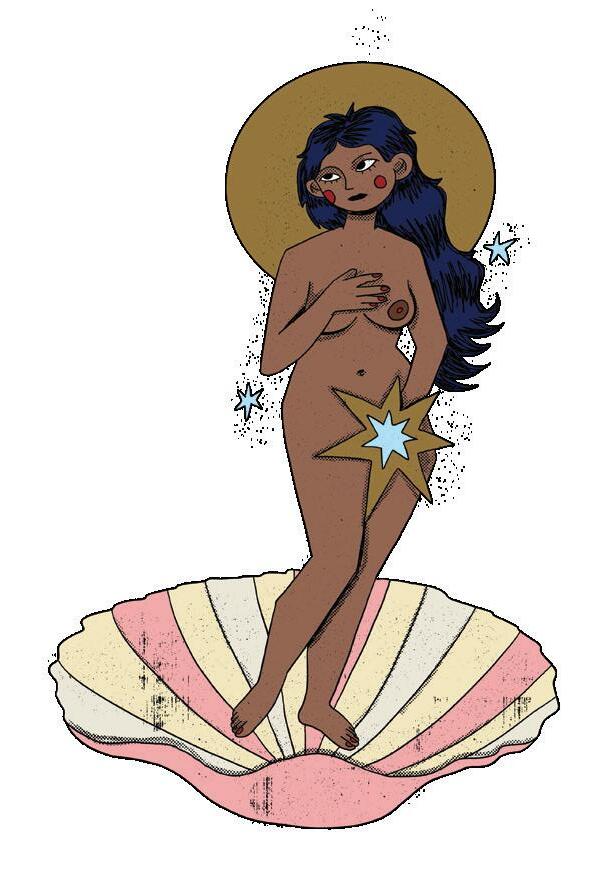
As an earth sign, your grounded nature is supposed to be a good thing. So, stop using it as an excuse to get caught up in your own head. Don't think yourself into a corner.
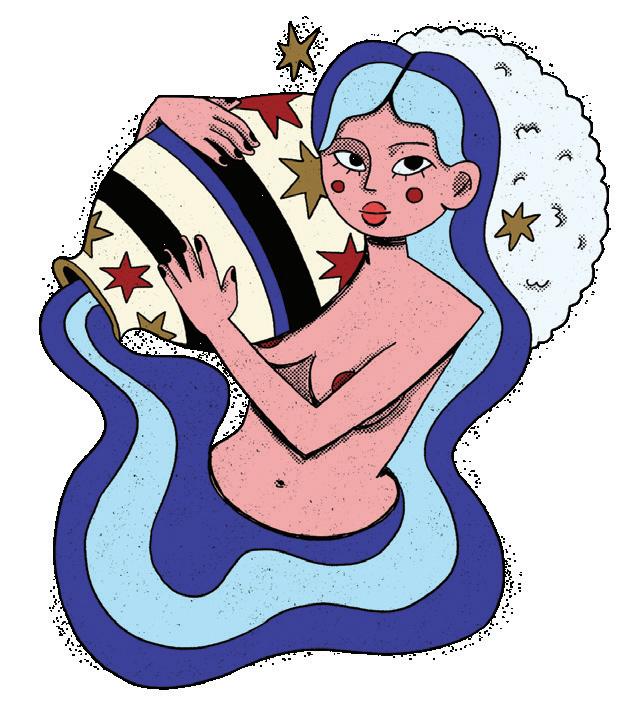
You have a major project that's been holding you down. Don’t let perfection get in the way of progress. Everyone else thinks it’s great, so you should too.
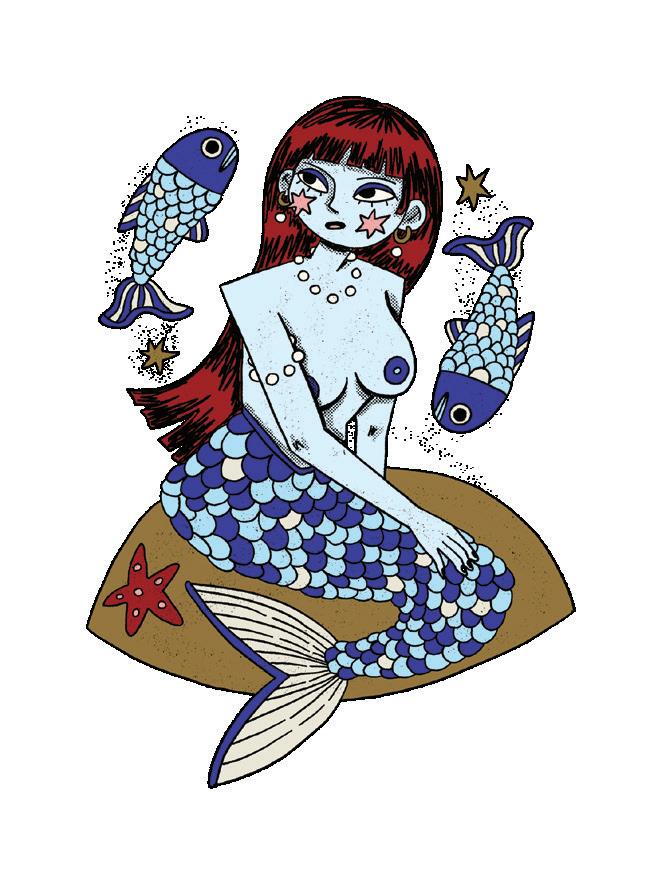
It’s tempting to run away and take up van life but hold on and stand your ground this week. Something great is coming your way, restoring a van to live in can wait.




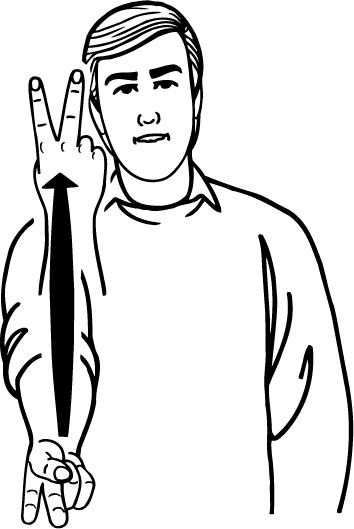

4. A shoe originally designed for men, now worn often by women (5)
7. Rom-Com about marrying someone outside of their culture (2,3,3,5,7)
10. Large friendship group at American universities (10)
11. What did Florence Parpart invent? (12)
12. Rangatira (5)
14. A legal dissolution of a marriage (7)
17. Controversial NZ megachurch (5)
19. A form of social organisation in which the mother or oldest female is the head of the family (10)
20. A ceremony uniting two people (7)
21. SAFTB (9,3,3,3,4)
1. Film about three women African American mathematicians (6,7)
2. What was legalised in NZ on August 19th, 2013? (4,3,8)
3. Last week’s Massive issue theme (5,5,5)
5. Comedy starring Will Ferrell and Mark Wahlberg (6,4)
6. An unfair difference between the average amounts that two sectors of a population are paid (4,3)
8. Who invented the Barbie doll? (4,7)
9. “Women, they have minds, and they have ______ , as well as just hearts” (5)
13. In 2023, women CEOs finally outnumbered CEOs named ____ (4)
15. Which singer recently dropped a ‘feminist’ anthem? (4,5)
16. When a company sells the female version of a product for more than the male version (4,3)
18. Feminist English actress (4,6)



AARIA HUNIA


EDITOR IN CHIEF
SAMMY CARTER
SHE/HER
TE AO MĀORI EDITOR
NGĀTI AWA, NGĀTI RANGITIHI
SHE/HER

MANAWATŪ REPORTER
ELIZABETH MOISSON
SHE/HER

STAFF WRITER
JESSIE DAVIDSON
SHE/HER


HEAD OF DESIGN

SUB-EDITOR
LUKA MARESCA
HE/THEY

TE AO MĀORI ILLUSTRATOR
KEELIN BELL
NATALYA NEWMAN
NGĀTI MANIAPOTO, NGĀTI POROU, NGĀPUHI

ŌTEHĀ REPORTER
YESENIA PINEDA
SHE/THEY

STAFF WRITER
KIRA CARRINGTON
SHE/HER

ILLUSTRATOR
JESS SKUDDER
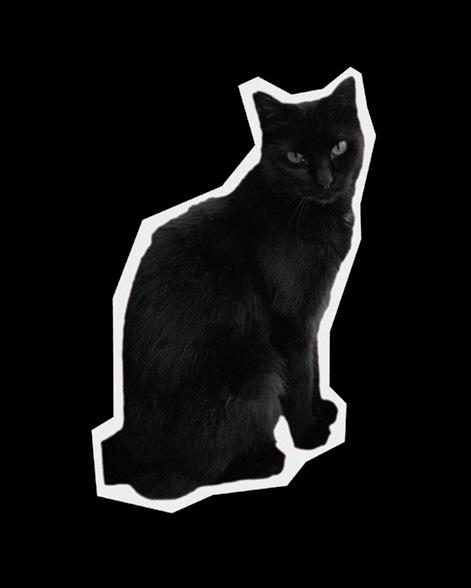
MASSIVE P*SSY POCKET
POCKET WOULD NOT PROVIDE PURRRNOUNS
CENTREFOLD ART BY JANE DYSON @AMIBADATART
COVER PHOTOGRAPHY BY ELI ARMSTRONG @ELI.A.PHOTOGRAPHY
